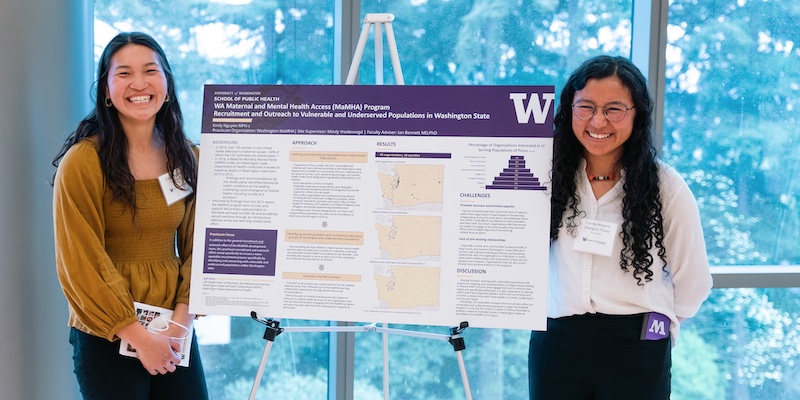
The 25th annual MPH Practicum Symposium & Reception
was held on Wednesday, April 12, 2023
Over 100 students presented their work addressing some of the most pressing public health challenges of our time. The annual MPH Practicum Symposium & Reception brings together students, families, faculty, site supervisors, donors, agency and academic leaders, and more every year to celebrate students’ practice work, faculty mentorship, and community partnership.
Symposium Presentations, Posters and Slides
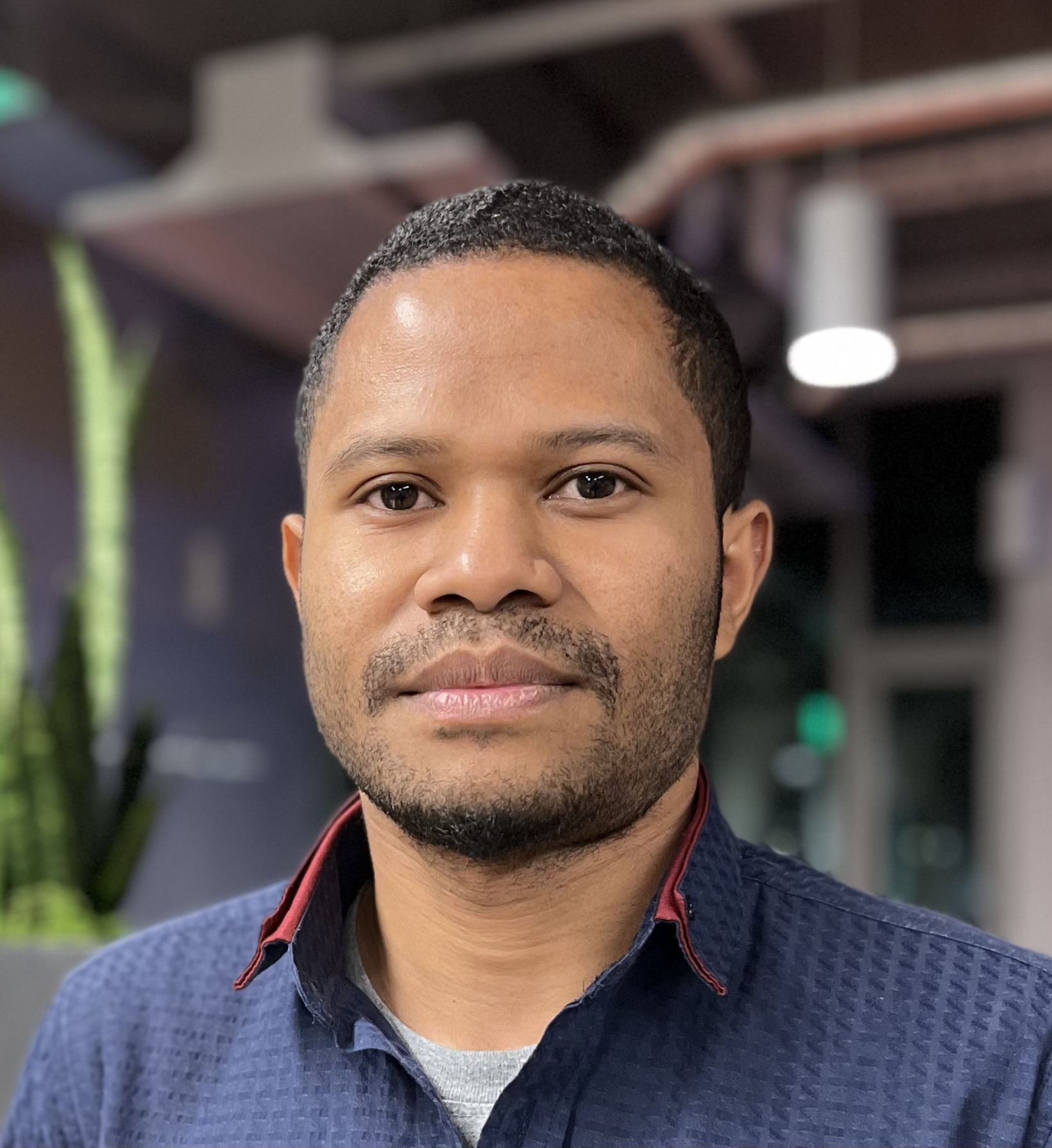
Simeon Junior Adiunegiya
sadiun@uw.edu
Two-Way Texting/Digital Health Innovation to Improve Detection of Post-Caesarean Section Surgical Site Infection in Low-Middle-Income Countries
PRACTICUM SITE: International Training and Education Center for Health (I-TECH)
SITE SUPERVISOR: Fernanda Freistadt
DEPARTMENT: Global Health
FACULTY ADVISER: Caryl Feldacker
I am a second year MPH student in the department of global health. I am an international student from Papua New Guinea. My areas of interests are maternal healthcare, infectious disease, vaccines (HPV vaccine), and implementation science. During my practicum, I worked with International Training and Education Center for Health or I-TECH team at UW in conduction literature review on the use of two-way-texting (TWT)/ digital health innovations to improve detecting, and care of post cesarean section surgical site infection among women in low-middle-income-countries. Specifically, this involved identifying the current evidence supporting the use of TWT, the contextual and cultural factors that affect its use, and providing recommendations to improve future program development. My work has helped the organization better understand the current landscape in TWT in postpartum care, and is in the process of developing a program in a LMICs. My faculty advisor was Caryl Feldacker and site supervisor was Fernanda Freistad
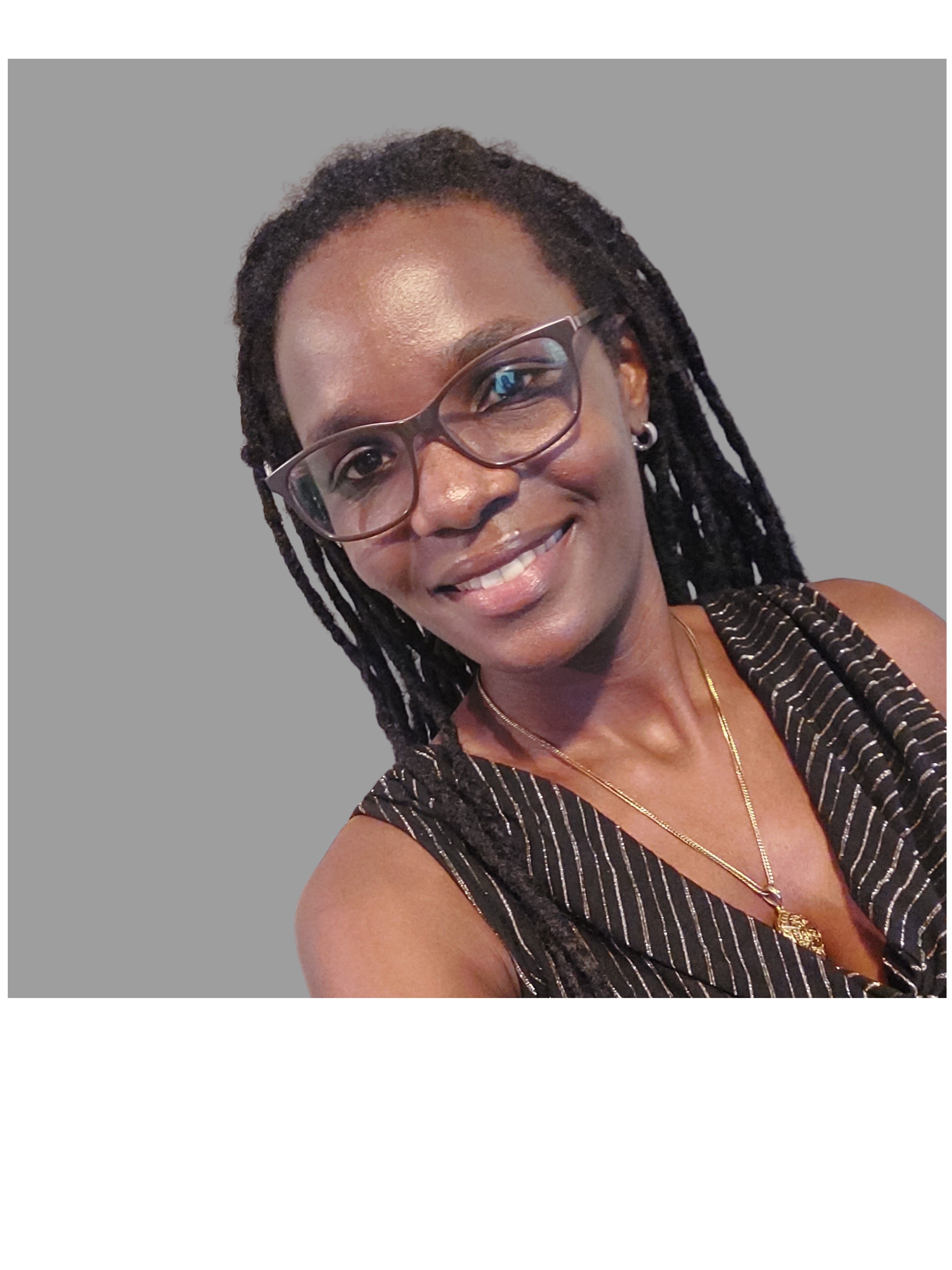
Edinah Casmir
ecasmir@uw.edu
Developing a Caregiver Psychosocial Intervention to Reduce Mortality and Readmission Among Children with HIV and Severe Acute Malnutrition in Kenya.
PRACTICUM SITE: University of Washington Global Center for Integrated Health of Women, Adolescents, and Children (Global WACh)
SITE SUPERVISOR: Arianna Means
DEPARTMENT: Global Health
FACULTY ADVISER: Kirk Tickell
I am a second-year MPH-Global Health candidate interested in using behavioral science approaches to design evidence-based interventions and policies to improve adolescent reproductive health outcomes. For my practicum, I worked with the University of Washington, WACh Department to develop adaptable caregiver psychosocial interventions featuring a counseling guide and adherence support log, to enhance health outcomes among Kenyan children living with HIV and comorbidities following hospital discharge. A review of existing literature and raw data from previous studies in Kenya guided the development of these two psychosocial therapies. Additionally, I presented to the project team how their previous work may inform subsequent studies and prepared a summary of the psychosocial interventions that may enhance caregiver adherence to therapy. I am grateful to have had the opportunity to work with implementation science experts and learn from them.

Douglas Gaitho
dgaitho@uw.edu
Review of Kenya National Curriculum on Elimination of Mother to Child Transmission (eMTCT) of HIV and Development of Training Tools to Support Country Roll-Out
PRACTICUM SITE: Kenyatta National Hospital
SITE SUPERVISOR: Ruth Nduati
DEPARTMENT: Epidemiology
FACULTY ADVISER: Christine McGrath
I am a second year MPH student in the department of Epidemiology with affiliation to the Aga Khan University – Nairobi, Kenya. My background is in Pediatrics Infectious diseases. My overall goal is to be a leader who promotes health among children and adolescents in diverse and underserved populations by building on awareness, education, research and outreach services. My practicum project involved reviewing an elimination of mother to child transmission (eMTCT) of HIV curriculum and developing training tools and materials for the roll out of a national eMTCT program. I reviewed a draft curriculum and prepared a presentation for the National eMTCT technical working group. After their input, I incorporated changes in the curriculum based on stakeholders’ engagement meetings and in line with the current World Health Organization guidelines. I thereafter developed curriculum content that is specific to different target populations in the community – this included community leaders and community implementers.
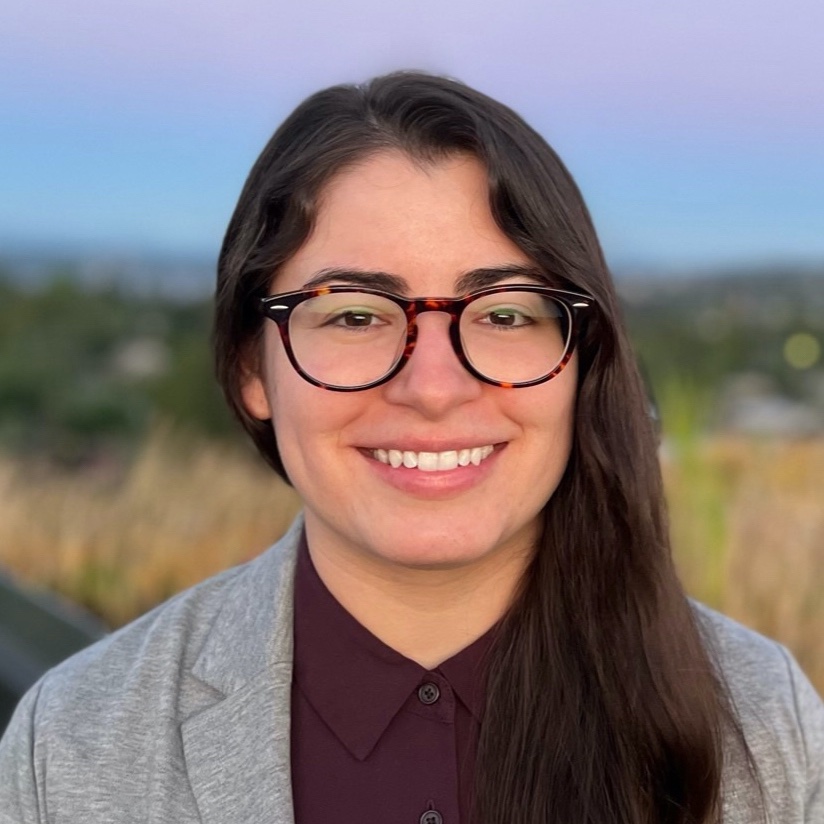
Lauren Gomez
akarume@uw.edu
Evaluating Breastfeeding Practices and Attitudes Among Immigrant and Refugee Populations in King County
PRACTICUM SITE: Global Perinatal Services
SITE SUPERVISOR: Anna Elberier
DEPARTMENT: Epidemiology
FACULTY ADVISER: Daniel Enquobahrie
I am a second-year MPH student in the Department of Epidemiology with an interest in maternal and child health. For my practicum, I worked with Global Perinatal Services (GPS), a community organization that offers doula services, support groups, advocacy, and education to new and expecting parents in King and Pierce County, Washington. GPS serves marginalized populations including BIPOC, immigrant and refugee communities. To assess the needs of the clients GPS serve and to inform future programing, my practicum project involved evaluating breastfeeding practices, perceptions, and attitudes among GPS clients and understanding the impact of the recent formula shortage. Practicum activities consisted of conducting a literature review, developing, and implementing a survey, and producing a report of findings.
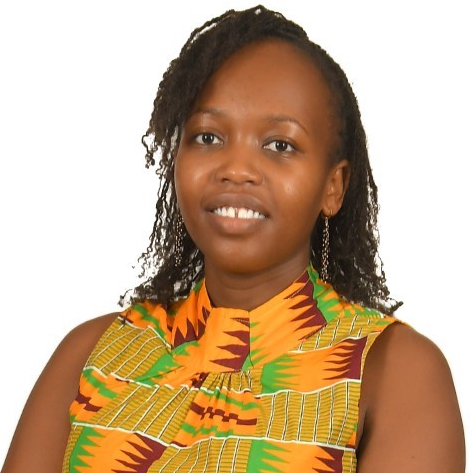
Agnes Karume
akarume@uw.edu
Using Person-Centered Approach to Inform Design of Women and Child Health Education Tools and Evaluate a Community Health Outreach Program
PRACTICUM SITE: Somali Health Board
SITE SUPERVISOR: Ladan Abdi
DEPARTMENT: Global Health
FACULTY ADVISER: Anjuli Wagner
I am a first year MPH- Global Health international student from Kenya. My interest is in using implementation science and quality improvement tools to improve women, adolescent and children sexual reproductive and mental health including HIV. For my practicum I am working with Somali Health Board (SHB) a public, non-profit grassroots organization, formed in 2012 by Somali health professionals and volunteers concerned about the health disparities that disproportionately affect new immigrants and refugees within King County. SHB collaborates with partners such as UW and King County to provide various health services including community outreach clinics and health education programs in a bid to reduce health disparities. I will be using a person-centered approach asking the question “What Matters to You” to gain insights on the most important aspects of health that the community members would like to know more about on women and adolescent health to help inform design of education tools and evaluate the outreach program.
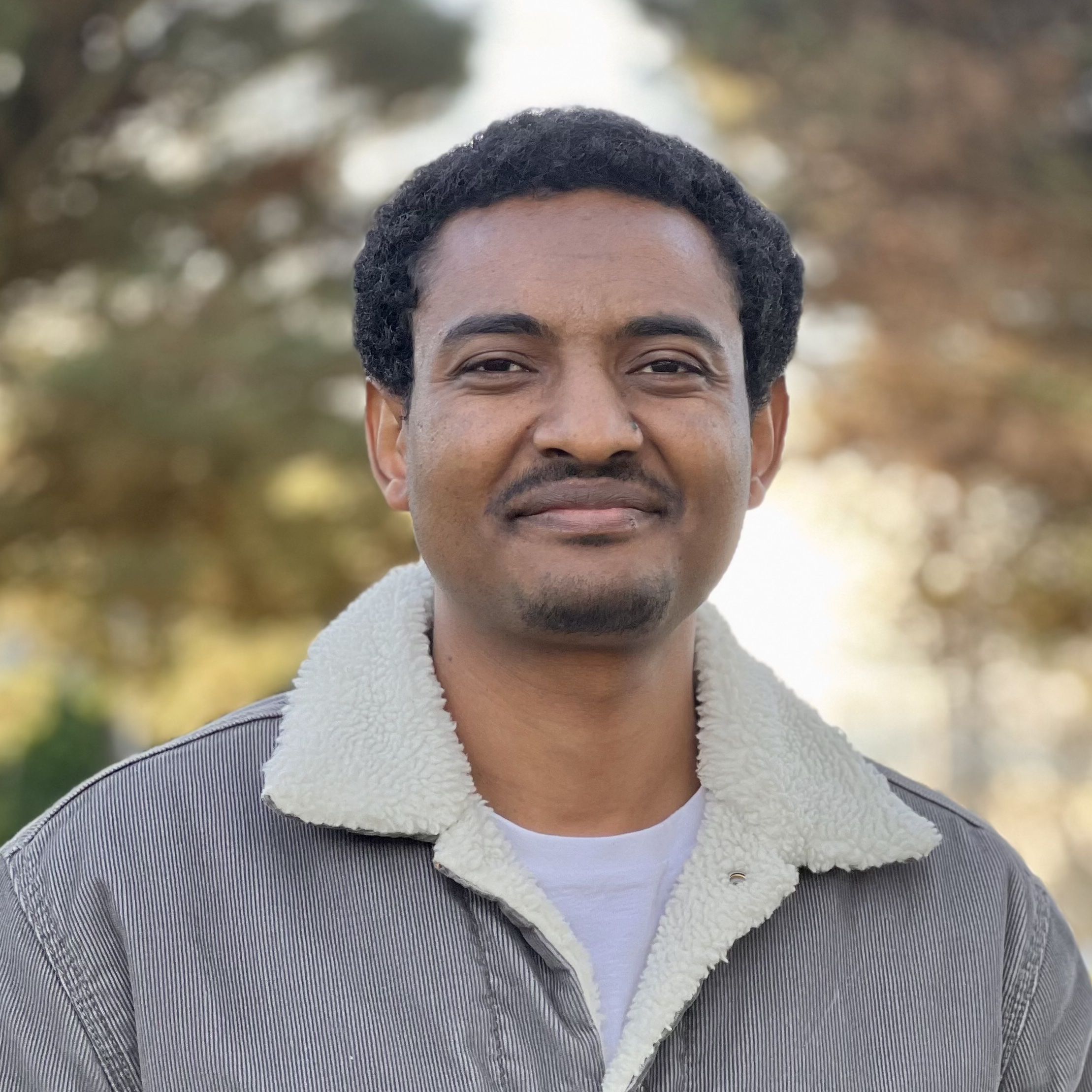
Fikir Kibret
fikir60@uw.edu
Newborn Nutrition
PRACTICUM SITE: PATH - Maternal, Newborn, Child Health and Nutrition
SITE SUPERVISOR: Kiersten Israel-Ballard
DEPARTMENT: Global Health
FACULTY ADVISER: Allison Drake
I am a second-year MPH student in the Global Health Program, General track. My research interests include maternal, newborn, child health and nutrition. For my practicum, I worked with PATH MNCHN program, a program that works across the globe to develop effective, cutting-edge approaches to increase access to and use of evidence based MNCHN interventions that address the most pressing causes of maternal, newborn, and child deaths as well as poor nutritional status. I updated PATH's newborn nutrition database which serves as a valuable resource for scholars doing their research on newborn nutrition and care. I also conducted literature review on donor human milk and presented my work to PATH’s MNCHN team. I am grateful to have had the opportunity to learn from PATH’s MNCHN team and experience working in an international organization. Outside of school and work, I enjoy playing football, hiking, and biking.
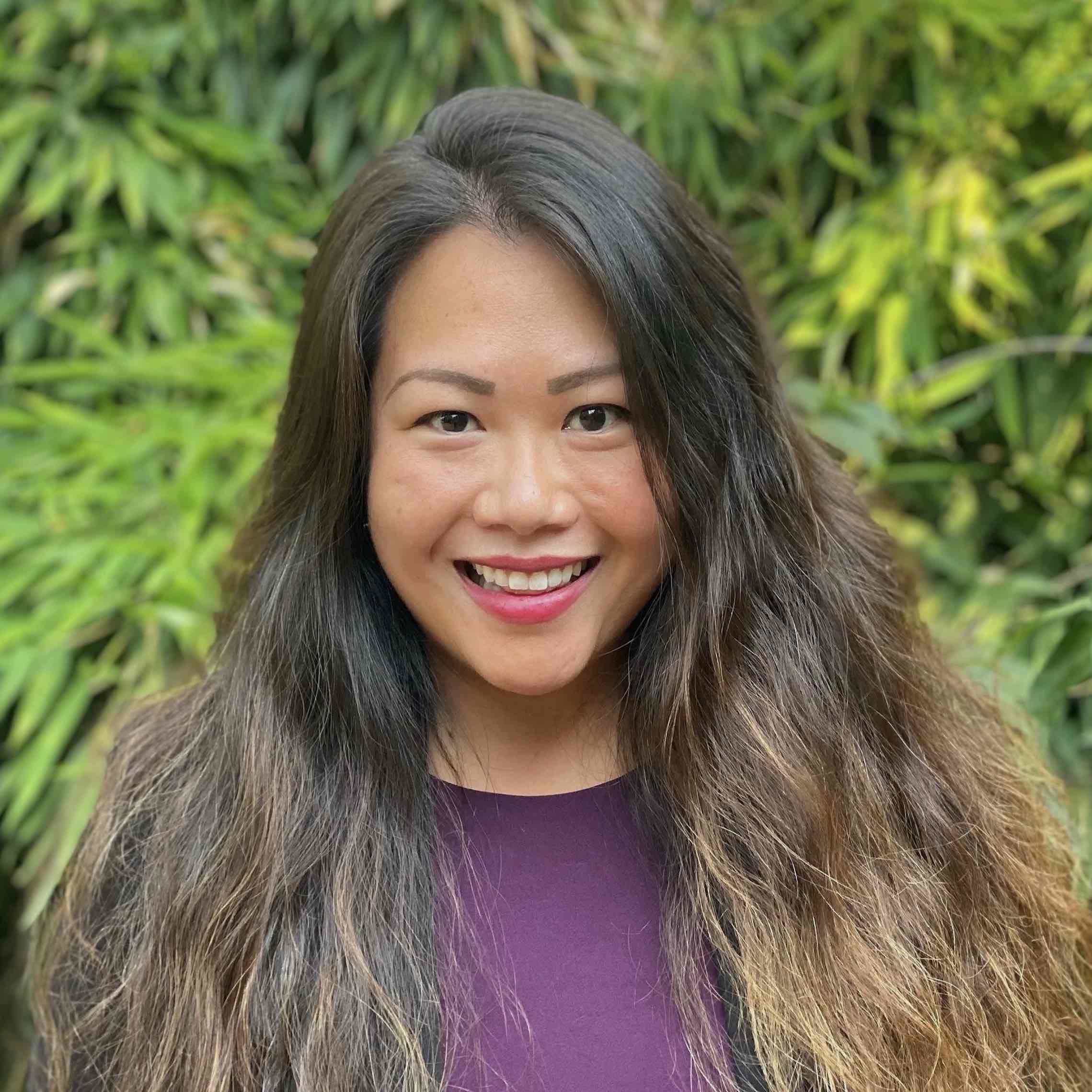
Cassandra Koid
casseykoid@gmail.com
Use of Virtual Reality Goggles in Reducing Pain Scores and Disparities Associated with Pain in the Pediatric Emergency Department.
PRACTICUM SITE: Seattle Children’s Hospital, Pediatrics
SITE SUPERVISOR: Anita Anne Thomas
DEPARTMENT: Health Systems & Population Health
FACULTY ADVISER: Eileen Klein
I am a second year MPH candidate in Health Systems and Population Health (General Track) and I am also a third year Pediatric Emergency Medicine fellow at Seattle Children’s Hospital/University of Washington. I had the opportunity to work with a multidisciplinary team of pediatric emergency medicine providers, nurses, child life specialists, Odessa Brown Clinic, and the pain and Sickle Cell team. We introduced virtual reality (VR) goggles as an adjunct to manage pain in the setting of a sickle cell disease crisis. Pain, dehydration, and previous trauma with procedures are barriers to placing an intravenous (IV) catheter and distraction via VR could decrease stress and anxiety. We recognize that patients with sickle cell disease are a vulnerable group and that there are disparities by race, ethnicity, and language for pain medications. We created instructional VR training videos for staff and infographics to help identify which patients would be suitable for the VR goggles.
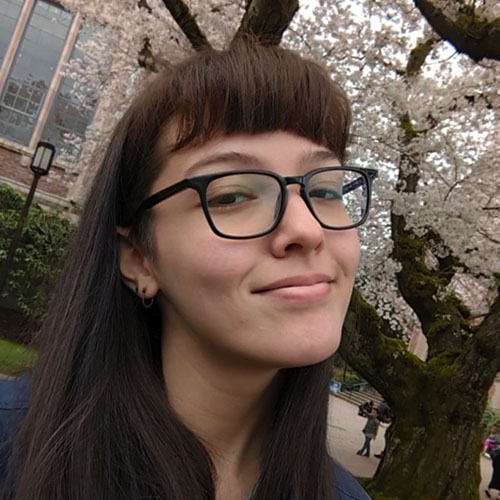
Abbey Marye
amarye@uw.edu
Policy Development for the Hawaii Newborn Screening Panel
PRACTICUM SITE: Hawaii State Department of Health, Western States Regional Genetics Network
SITE SUPERVISOR: Sylvia Mann
DEPARTMENT: Public Health Genetics
FACULTY ADVISER: Deborah Bowen
I am a second-year MPH candidate at the Institute of Public Health Genetics with an interest in exploring and creating policy within the field of genetics. My practicum took place with the Hawaii Department of Health in the Genomics Section which handles newborn screening. I was responsible for verifying existing research and data figures for diseases that were to be considered for placement on the Hawaii newborn screening panel in addition to conducting my own literature search on two other diseases for potential consideration. I presented our research to the advisory committee to vote on whether or not to add diseases to the panel and created a presentation for the other two diseases for future use. This work was valuable in developing my research and communication skills in addition to allowing me to experience the policy side of genetics. I hope to continue using research to create policy in my future career.
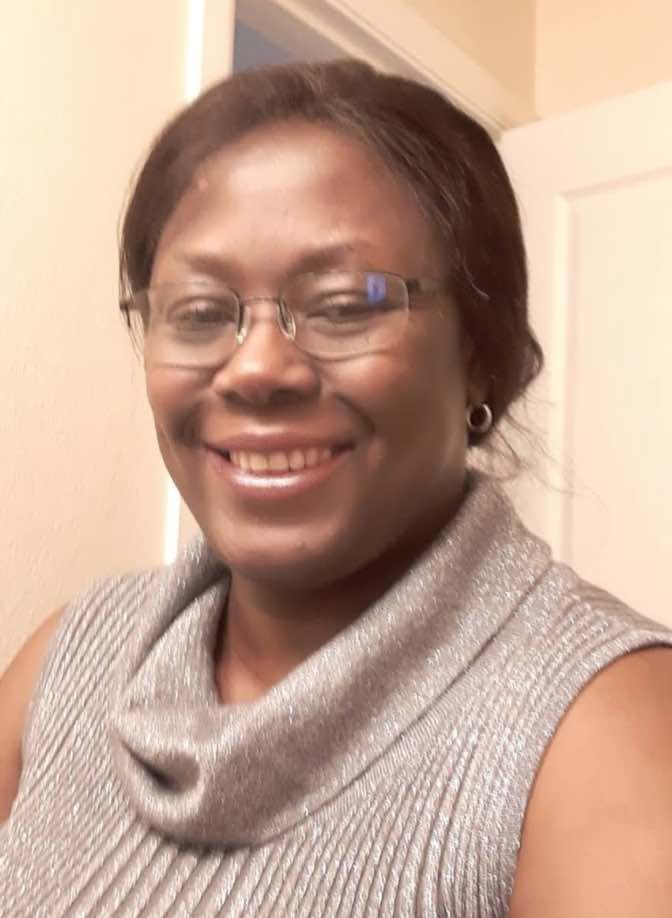
Nicole Mbouemboue
nicolm22@uw.edu
Developing a Culturally Competent Family-Centered Care Plan for Preterm and Low Birth Weight Babies in Maternity Wards in Lubumbashi, Democratic Republic of Congo
PRACTICUM SITE: University of Lubumbashi School of Public Health
SITE SUPERVISOR: Abel Ntambue
DEPARTMENT: Global Health
FACULTY ADVISER: Stephen Gloyd
I’m a second year MPH student in the Department of Global Health. My research interests relate broadly to social determinants of women’s health, maternal, infant, early childhood, as well as adolescent health in low and middle-income countries. My practicum took place in Lubumbashi, Democratic of Congo. During my six-weeks in Lubumbashi, I had the opportunity to work with officials from University of Lubumbashi- School of Public Health, and those from the National Program on Reproductive Health, Lubumbashi Division, on issues related to the care provided to preterm and low birthweight babies in the region. My goal was to help design an innovative culturally appropriate care plan based on the family-centered model. This was a great opportunity to learn how to design an intervention that takes into account the culture and beliefs of a specific group of the population.
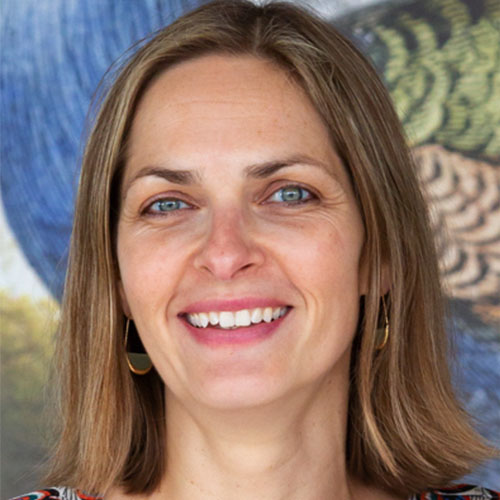
Alina Metje
ametje@uw.edu
Understanding How an Online Patient Portal Can Support Adolescent Sexual and Reproductive Healthcare Needs
PRACTICUM SITE: Kaiser Permanente Washington Health Research Institute
SITE SUPERVISOR: Dr. Andrea Hoopes
DEPARTMENT: Global Health
FACULTY ADVISER: Bradley Wagenaar
I'm a second-year MPH candidate in the Department of Global Health with an interest in maternal and child health and global health justice. For my practicum, I worked with Kaiser Permanente Washington Health Research Institute (KPWHRI). I was involved in a qualitative study of adolescent electronic patient portal use to address sexual and reproductive health needs. The aim was to improve care for adolescents by understanding facilitators and barriers to teenagers' MyChart use for communication about sexual and reproductive health care needs and develop design insights for future portal-based interventions. I was responsible for the literature review and was involved in the qualitative analysis. Our team is now in the process of submitting a research manuscript for publication. The practicum inspired me to pursue a qualitative thesis that investigates teen transition of care.
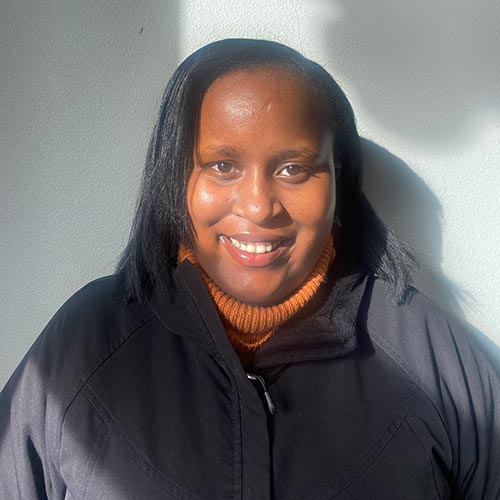
Faith Ngae
ngaef@uw.edu
Evaluation of the Healthy Women Healthy Family Initiative
PRACTICUM SITE: New Jersey Department of Health Association of Maternal & Child Health Programs
SITE SUPERVISOR: Genevieve Lalanne-Raymond
DEPARTMENT: Epidemiology
FACULTY ADVISER: Daniel Enquobahrie
I am a second-year MPH student in Epidemiology, Maternal and Child Health track. I completed my practicum through the Graduate Student Epidemiology Program (GSEP). I was placed with the New Jersey Department of Health where I assisted in the Evaluation of the Healthy Women Healthy Family Initiative. This initiative is a community-based program designed to improve and provide quality access to preconception, prenatal and Interconception care for women and reduce health disparities in birth outcomes. I was tasked with creating, implementing, and analyzing survey responses collected from Community Health Workers, Grantee agency staff and Birthing persons. I am grateful to have had the opportunity to see the implementation of statewide interventions and learn from the New Jersey Division of Family Health Services.
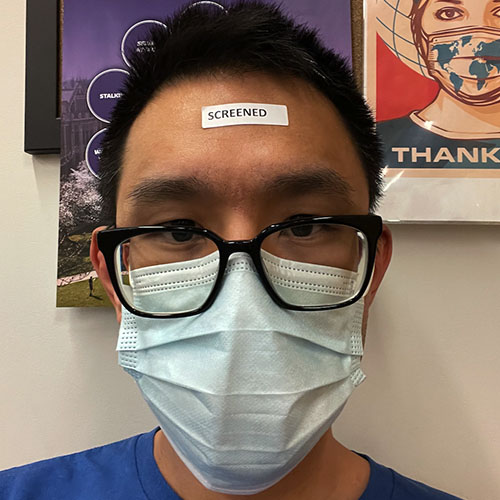
Nam P.
Using Public Health Intelligence to Reduce Disparities in Maternal Care
PRACTICUM SITE: Harborview Medical Center
SITE SUPERVISOR: Alson Burke
DEPARTMENT: Epidemiology
FACULTY ADVISER: Abraham Flaxman
I am an MPH student in the Department of Epidemiology. My interests are broadly in understanding how data can be used to inform public health needs at the societal level to ultimately improve medical care at the individual level. Increasing parental age has been a well documented trend in society and I was interested in exploring this phenomenon and all its public health implications in a systematic way using open source intelligence (e.g., vital statistics). The practicum was a combination of creating an analytical framework to facilitate access to these large scale data as well as exploring trends and associations in partnership with the clinical expertise from the adult medicine and OB/GYN clinic at Harborview Medical Center.

Ajla Pleho
ajlap@uw.edu
A Response Toolkit for Addressing Childhood SDoH During Primary Care Visits
PRACTICUM SITE: University of Washington Department of Pediatrics
SITE SUPERVISOR: Esther Chung
DEPARTMENT: Global Health
FACULTY ADVISER: Donna Denno
I am a second year MPH candidate in the Department of Global Health. Before I even knew the concept of global health, my upbringing in Bosnia and Herzegovina opened my eyes to how social, political, and economic factors could determine one’s access to healthcare, which in turn, also determines their ability to live. I was born in a country that was the battleground of the longest war in modern history. My family and I moved to the United States in search of more resources and a better quality of life. Being exposed to such events led me to a passion for refugee work and maternal and child health. For my practicum, I had the opportunity to work alongside a team of UW pediatricians to create a comprehensive toolkit for families and physicians to use during pediatric primary care visits. This toolkit covers critical determinants of health during childhood and into adulthood, including education, housing, food security, safe living environment, and financial security.
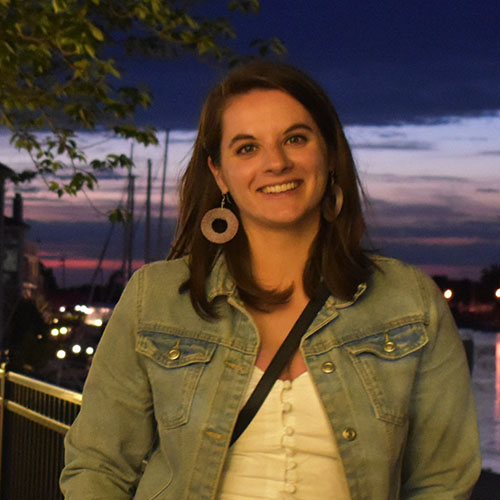
Sonia Rao
sirao7@uw.edu
Developing Communication Pieces for “Bate Papo Vacina!”: A Qualitative Study on Barriers to Childhood Vaccination in Mozambique
PRACTICUM SITE: VillageReach
SITE SUPERVISOR: Jocelyn Powelson
DEPARTMENT: Global Health
FACULTY ADVISER: David Smith
I am a second year MPH student in the Global Health- Health Metrics and Evaluation program, interested in health systems strengthening and the use of data for optimizing access to quality health care for all. For my practicum I worked with VillageReach’s Research, Evidence and Learning team on the results dissemination stage of a qualitative, participatory study assessing drivers of routine childhood immunization drop-out in Zambézia Province, Mozambique. I conducted secondary analysis of the study’s qualitative data and developed tailored communications materials for stakeholders. I enjoyed growing my skills working with qualitative data to craft powerful and succinct public health messaging. Learning more about the topic of childhood immunization coverage was also one of the factors that prompted me to concurrently pursue UW’s Global Health of Women, Adolescents, and Children (Global WACh) graduate certificate.
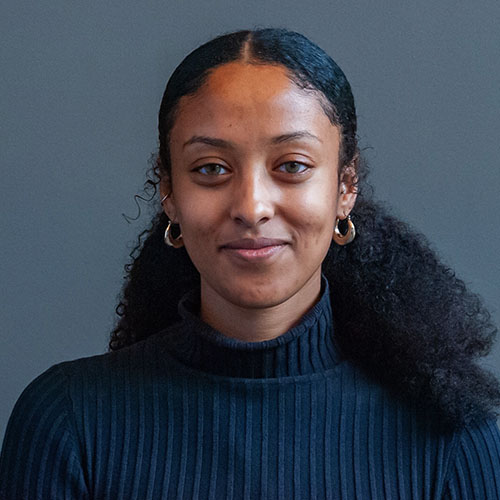
Rebecca Samuel
rs78@uw.edu
Youth Access for King County's Condom Distribution Program - Seattle/ King County
PRACTICUM SITE: Public Health Seattle & King County, HIV/STD Program
SITE SUPERVISOR: Francesca Collins
DEPARTMENT: Health Systems & Population Health
FACULTY ADVISER: Clarence Spigner
I'm a health systems and population program student with a concentration in social behavioral sciences. I'm an educator consultant for Seattle & King County Public health within the HIV/STD Program and an individual certified life coach. My project is partnered with King County on its condom distribution program. The Condom Distribution Program works by partnering with businesses and organizations in the priority areas of King County by supplying free condoms. The program has provided free condom cubes at over 100 sites within their designated zip codes across King County. My project is to identify middle schools/Junior high and High schools within the zip code CDP serves and investigate their school district(s)policies regarding condom availability and distribution on school grounds. As well as provide recommendations for outreach sites near schools per zip codes that we can approach for condom cube placement.
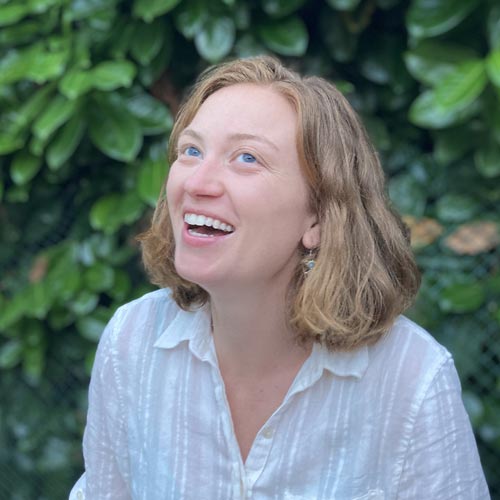
Marah Zinnen
mzinnen@uw.edu
Evaluating the Impact of Changes in the Service Delivery of Key Parent-Child Health (PCH) Programs
PRACTICUM SITE: Public Health Seattle King County WIC and First Steps Clinics
SITE SUPERVISOR: Heather Eliason
DEPARTMENT: Nutritional Sciences
FACULTY ADVISER: Cristen Harris
I am a second year MPH student in the Nutritional Sciences department, as well as a registered dietitian. I am interested in program design and evaluation of nutrition interventions for pregnant and lactating people, infants, and children. For my practicum project, I am conducting interviews with WIC and First Steps participants as part of PHSKC's investment and monitoring process. The goal of the interviews is to better understand participant’s expectations of WIC and First Steps services, seek feedback about the burdens and benefits of participating in these programs, and explore suggestions for continued evolution of the programs into the future. I am conducting qualitative analysis of the interviews to develop themes around these topics, which will ultimately generate recommendations for any changes to the service delivery model of these programs. From this experience, I've learned how to develop interview questions that are both open-ended and actionable. This project also gave me experience with qualitative analysis. Finally, I am developing a deeper understanding of the parent-child health service environment, and heard directly from participants about the perceived benefits and burdens of accessing care.
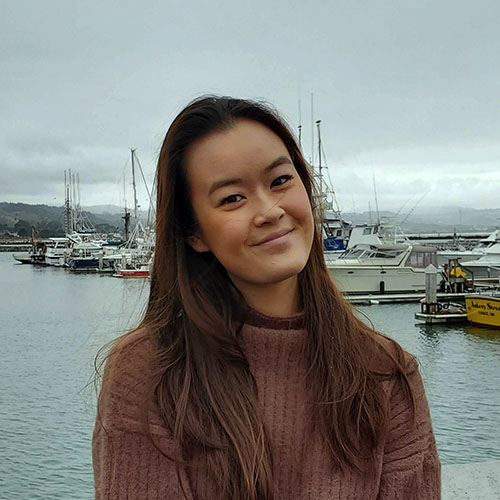
Cindy Au
cyn1998@uw.edu
Addressing the Effects of Harsh Winters on IDPs/Refugees in Camp Settings in Syria and Lebanon
PRACTICUM SITE: MedGlobal
SITE SUPERVISOR: Emma Forte Sczudlo
DEPARTMENT: Health Systems & Population Health
FACULTY ADVISER: Mary Anne Mercer
I am a second-year MPH candidate in Health Services and Population Health. I am passionate about technology applications in medical settings, health equity initiatives, and investigating the health effects of climate change. For my practicum, I partnered with MPH candidate, Lucas Gillespie, to conduct a literature review. We worked with MedGlobal, an NGO that partners with communities suffering from disasters to improve access to dignified healthcare through emergency response and health services delivery. We report on the health effects of harsh winter weather on refugees and internally displaced people in Syria and Lebanon. The report was published on both the MedGlobal website and ReliefWeb, titled "Climate Change, War, Displacement, and Health: The Impact on Syrian Refugee Camps". In this report, we describe findings of the literature review and put forth recommendations for stakeholders to approach effects of winter weather on the refugee or internally displaced population.
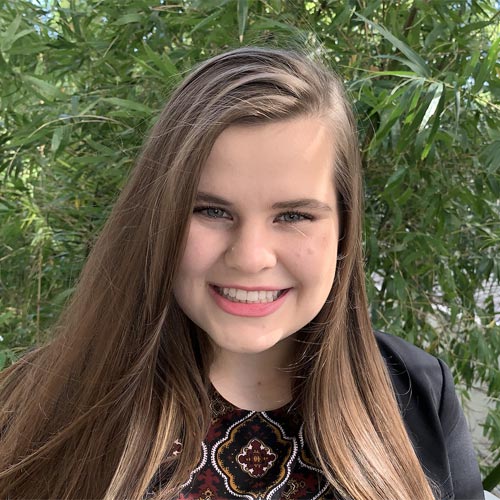
Maria Bajenov
mmb2909@uw.edu
Evaluating the Fifth Season: A Wildfire Smoke Preparedness Communication Campaign in Methow Valley
PRACTICUM SITE: Clean Air Methow
SITE SUPERVISOR: Elizabeth Walker
DEPARTMENT: Epidemiology
FACULTY ADVISER: Nicole Errett
For the past year, I have been working with Clean Air Methow to evaluate the Fifth Season, an audiovisual installation that shares community members’ wildfire experiences. The goal of this campaign was to highlight ways to reduce health impacts from wildfire smoke and increase coping strategies. Our team used a survey to capture knowledge and ability to reduce wildfire smoke exposure after experiencing the installation. The goal of the evaluation was to measure the effectiveness of the campaign and opportunities to improve. I was able to experience an evaluation from start to finish, or from logic model to evaluation report. This opportunity has shown me the resilience of a community faced with wildfires and fostered my interest in implementation science. Thank you to everyone who helped me throughout the process!
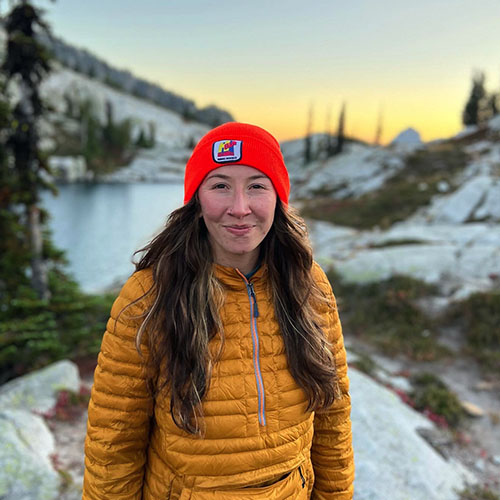
Cassidy Brewin
cbrewin@uw.edu
Impacts of Climate Change on Foodborne and Waterborne Illnesses
PRACTICUM SITE: Washington Integrated Food Safety Center of Excellence
SITE SUPERVISOR: Nicole Marshall
DEPARTMENT: Epidemiology
FACULTY ADVISER: Janet Baseman
I am a second year MPH-Epidemiology student with interests in public health practice, surveillance systems and rural health. For my practicum I worked with Washington State Department of Health and Washington Integrated Food Safety Center of Excellence on developing a catalog of Climate Data sources that can eventually be integrated into Foodborne and Waterborne illness disease surveillance in Washington State. Additionally, I worked on helping develop programmatic goals for a new project within the foodborne illness team at Washington State Department of Health that will focus on climate change and food and waterborne illness. In my free time, I enjoy backpacking, skiing, spending time with my new puppy and film photography.

Lucas Gillespie
lucasjg@uw.edu
Addressing the Effects of Harsh Winters on IDPs/Refugees in Camp Settings in Syria and Lebanon
PRACTICUM SITE: MedGlobal
SITE SUPERVISOR: Emma Sczudlo
DEPARTMENT: Global Health
FACULTY ADVISER: Mary Anne Mercer
I am a second-year MPH candidate in the Global Health General track. My primary interests in public health include climate change and health, health disparities research, food systems, and climate resilience in historically disadvantaged communities. For my practicum project, I worked with fellow MPH candidate Cindy Au to conduct a literature/desk review for MedGlobal, an international NGO that works to improve local health systems, support vulnerable communities, and respond to humanitarian crises. For this project, we completed a literature review about the health effects of harsh winter weather on refugees and internally displaced people in Syria and Lebanon, two countries in which MedGlobal works. The final project deliverable was a written report, published on the MedGlobal website and ReliefWeb, titled "Climate Change, War, Displacement, and Health: The Impact on Syrian Refugee Camps". This report highlighted our findings from the literature review and provided discussion of recommendations to MedGlobal, other NGOs, politicians, and the global community in addressing the issue of harsh winter weather on this vulnerable population.
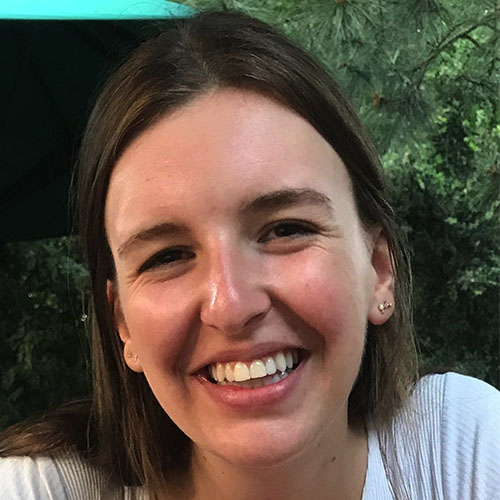
Carole Green
carolemg@uw.edu
Assessing Public Health in Climate Change Planning Across Washington
PRACTICUM SITE: Washington State Department of Health - Environmental Public Health
SITE SUPERVISOR: Paula Reeves
DEPARTMENT: Global Health
FACULTY ADVISER: Kristie Ebi
Recent legislation has passed to enforce the development of county climate action plans in Washington, with the Department of Commerce providing guidance. To incorporate the human health impacts of this, the Department of Health was asked to provide climate guidance with known health benefits. This internship with the DOH Climate and Health team aimed to meet that goal of providing relevant climate guidance to Washington counties on what climate actions have health benefits. The primary focus of my work was compiling the scientific evidence of which measures were relevant to create a policy map of potential actions. This was supplemented by a comparison of current counties’ climate action plans and overlaying the health benefits. The resulting paper is set to be released to complement the guidance by DoC and provide a public health perspective for counties working to address climate change in their region.
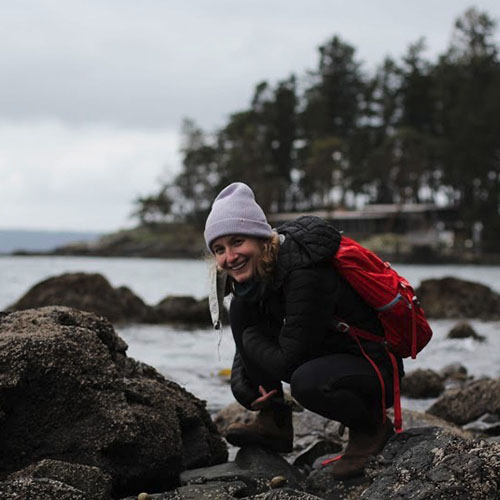
Meg Hamele
mhamele@uw.edu
Seattle Street Sink Evaluation
PRACTICUM SITE: Seattle Public Utilities
SITE SUPERVISOR: Kate Morrison
DEPARTMENT: Environmental and Occupational Health
FACULTY ADVISER: Karen Levy
I’m in my third and final year of a concurrent Master of Public Health (DEOHS) and Master of Urban Planning, with an interest in infrastructure and its impact on environmental and human health. I completed this project with Seattle Public Utilities, where I am a public health and environmental policy intern. The Street Sink program was a novel approach to providing public hand washing stations that emerged as a response to COVID-19 in 2020. The program, despite an enormous effort made by community partners, had a difficult time getting off the ground and this project investigated why that was. I learned so much about city government programming, the barriers it faces due to its siloed nature, and perhaps most importantly that infrastructure installation is an incredibly complex task. The project was a fantastic fit for my professional goals and personal interests.
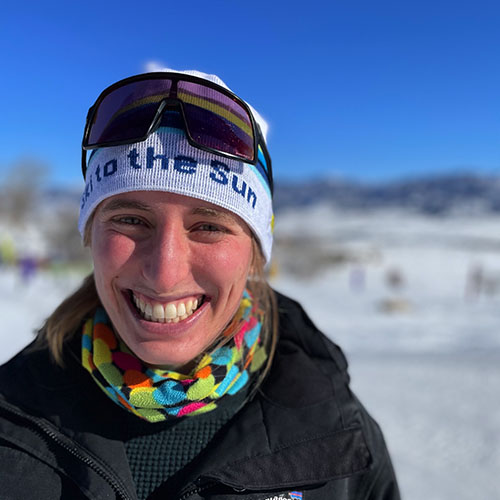
Sonya Jampel
sjampel@uw.edu
Creation of Internal and External Resources for New Infrastructure and Technical Assistance Section at the Environmental Protection Agency (EPA)’s Water Division: “Water are we going to do with all this money?”
PRACTICUM SITE: Region 10 Environmental Protection Agency Office of Environmental Assessment
SITE SUPERVISOR: Mat Martinson
DEPARTMENT: Epidemiology
FACULTY ADVISER: Esther Min
I am a second year MPH student in epidemiology with a concentration in maternal and child health. I had the opportunity to intern at the Environmental Protection Agency (EPA) in Region 10 (Seattle) in the Water Division on the Infrastructure and Technical Assistance Section. Given recent funding from the Bipartisan Infrastructure Bill (BIL), Inflation Reduction Act (IRA), and the yearly Consolidated Appropriations Act, normal water infrastructure funding has tripled typical yearly funding levels leading to the creation of a new section. For my practicum, I organized resources about water infrastructure funding programs and created workflows to onboard new staff and create team cohesion. I also assisted with webinars with grant recipients to explain new grant programs and conducted an environmental justice mapping analysis of new grant programs. I will bring my experience with federal efforts to improve health through funding structures to future environmental public health work.
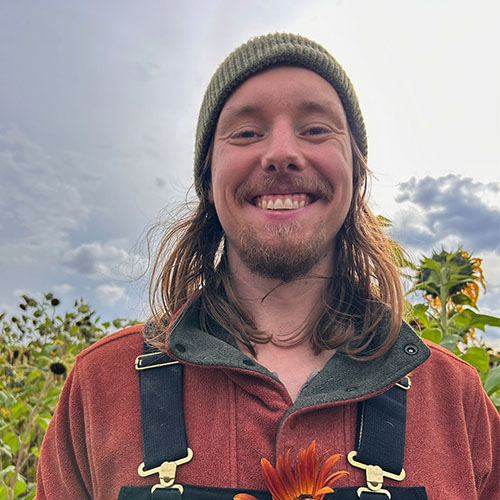
Matias Korfmacher
mkorf@uw.edu
The Heat is On: Improving Healthcare Sector Response to Extreme Heat Events in Western Washington
PRACTICUM SITE: Northwest Healthcare Response Network
SITE SUPERVISOR: Nate Matthews-Trigg
DEPARTMENT: Environmental and Occupational Health
FACULTY ADVISER: Nicole Errett
I am a concurrent Master's in Public Health (DEOHS) and Master's Urban Planning student. My research involves place-based and community-engaged approaches to health challenges related to disasters due to natural hazards. For my practicum, I worked with the Northwest Healthcare Response Network (NWHRN) to conduct a series of listening sessions and focus groups of partners in the healthcare sector about lessons learned from the extreme heat events of 2021 and 2022. The main output from my practicum is an analysis of the sector-wide challenges and strategies related to protecting public health in the face of long-lasting extreme heat, a new hazard type to the region that is likely to become more frequent in the coming decades. Supplementing this analysis is a set of actionable strategies and long-term objectives that will be shared with NWHRN's partners ahead of the 2023 heat season.

Thu Nguyen
nguyethu@uw.edu
2022 Wildfire Smoke Relief Projec
PRACTICUM SITE: American Lung Association of Washington
SITE SUPERVISOR: Molly Ryan
DEPARTMENT: Health Systems & Population Health
FACULTY ADVISER: Edward West
I am a second-year master’s student at the University of Washington in the Public Health department studying Health Services. The 2022 Wildfire Smoke Relief Project will provide low-income, older adults living in Chelan, Douglas, Grant, and Okanogan Counties who have chronic lung conditions, including Chronic Obstructive Pulmonary Disease (COPD), lung cancer, asthma, and interstitial lung disease (ILD), with a HEPA air purifier unit to prevent worsening symptoms caused by wildfire smoke. Residents will also receive educational materials to better understand how to manage their condition during wildfire season, leading to better disease self-efficacy and health outcomes.
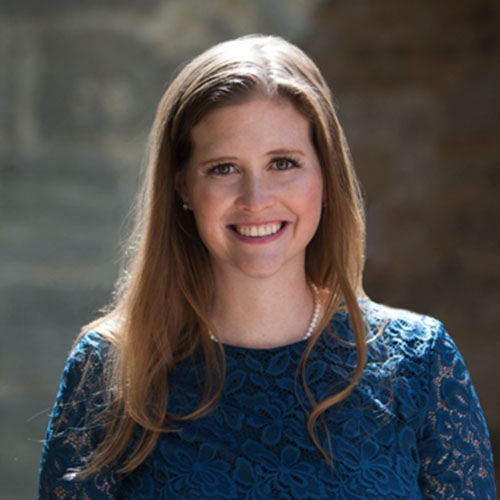
Leah Willess
lwilless@uw.edu
Judicious Antimicrobial Use Guidance for Common Medical Conditions in Companion Animal
PRACTICUM SITE: Washington State Department of Health - Communicable Disease Epidemiology
SITE SUPERVISOR: Marisa D'Angeli
DEPARTMENT: Environmental and Occupational Health
FACULTY ADVISER: Peter Rabinowitz
I am a second year MPH One Health candidate and veterinarian in the U.S. Army. I have interests in zoonotic disease, food protection and particularly in antimicrobial resistance. According to the Centers for Disease Control and Prevention antimicrobial resistance is a growing One Health problem that affects humans, animals, and the environment. For my practicum, I worked with the Washington State Department of Health and the Washington Animal Disease Diagnostic Laboratory to develop antimicrobial use guidance for small animal veterinarians in Washington. Products created include a poster and pocket guide covering judicious antimicrobial use for common medical conditions in dogs and cats along with client communication tips focused on discussing appropriate antimicrobial use with pet owners. It was a wonderful experience to work with a multidisciplinary team on this project.
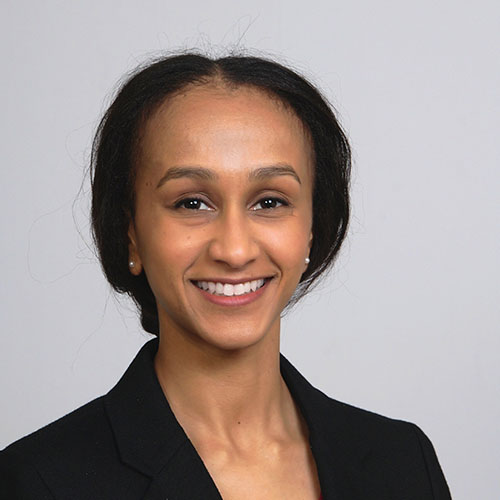
Nada Ali
nadaali@uw.edu
Optimizing Partner Stewardship in Global Cleft Care
PRACTICUM SITE: Smile Train
SITE SUPERVISOR: Kristina Kelkenberg
DEPARTMENT: Global Health
FACULTY ADVISER: Stephen Gloyd
I am a second year MPH student in Global Health. I am also an otolaryngology resident with an interest in improving equitable access to safe, affordable, and effective surgical care. For my practicum, I worked with Smile Train, the world’s largest cleft-focused organization. Smile Train utilizes a sustainable and local model of supporting cleft surgery and comprehensive cleft care that has allowed it to reach over 1.5 million children with clefts in the last two decades. As a practicum student, my role was to support the work of Partner Stewardship within Smile Train. I provided a written overview of a tiering system proposal with which Smile Train partnerships can be assessed and provided clinical insight to a consultant team to build a tiering system model. My time at Smile Train was fulfilling and will enable me to be a better surgeon and global health practitioner.
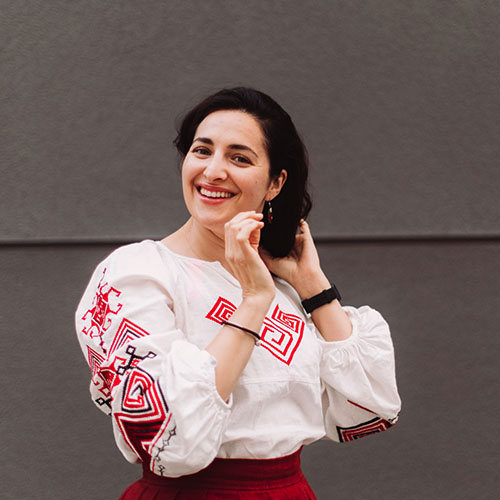
Olena Bidovanets
obidov@uw.edu
Assessment of Needs and Strengthening of Healthcare Facilities in Ukraine During the Ongoing Russian-Ukrainian War
PRACTICUM SITE: STEP-IN
SITE SUPERVISOR: Zuzana Ulman
DEPARTMENT: Global Health
FACULTY ADVISER: Keshet Ronen
I am a second-year MPH candidate in the Department of Global Health. When the war started in Ukraine many hospitals were destroyed by missiles and attacks, other hospitals were overwhelmed with IDPs, and they needed supplies. STEP-IN has delivered Clinic in a Can facilities to the liberated areas where the medical facilities were destroyed. The organization has procured medical supplies and medications to the hospitals occupied by IDPs in the Western and Eastern parts of Ukraine, based on the requests of the hospitals. My role as a Field Coordinator has been to assess the needs (remotely and in person), and provide the justification for the medical facilities the organization would choose.
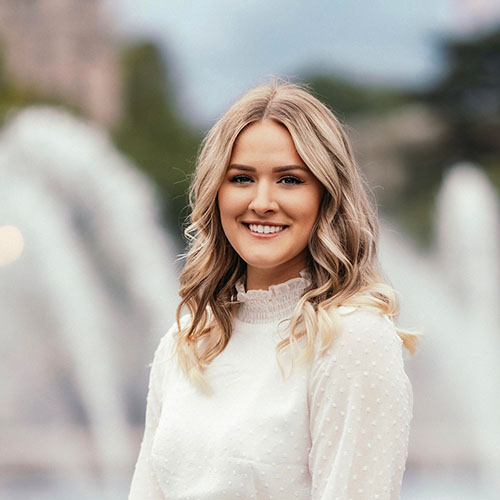
Taylor Erickson
terick11@uw.edu
Toolkit for Washington State Healthcare Providers that Deliver Primary Care to Recently Resettled Refugees
PRACTICUM SITE: Harborview Medical Center - EthnoMed
SITE SUPERVISOR: Ehsan Shayegan
DEPARTMENT: Health Systems & Population Health
FACULTY ADVISER: Arianna Means
I grew up in a small rural community outside of Vancouver, WA and graduated with a Bachelor of Arts in Public Health-Global Health and Spanish from UW in 2021. I am a current MPH student in the Health Systems and Population Health department. For my practicum, I partnered with EthnoMed at Harborview to update their Primary Care Provider Refugee Health Toolkit. This resource was developed for health care providers that serve newly arrived refugees in King County. The toolkit provides clinical recommendations to address health priorities of refugee patients, and includes information that is specific to cultural and ethnic groups. This resource was originally developed over 10 years ago. Through my practicum, I assisted EthnoMed in updating this resource to align with the CDC’s current refugee health guidelines. Additionally, I developed a script and outline for a promotional video that will be disseminated to local providers advertising the updated toolkit.
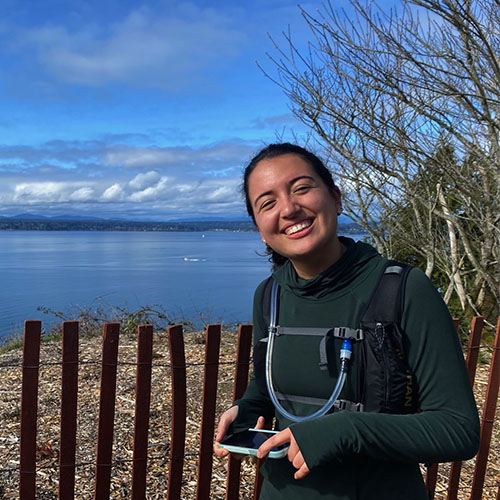
Gabriela Gil
gabigil@uw.edu
COVID Testing & Case Counts in State Prison Systems
PRACTICUM SITE: UCLA Law COVID Behind Bars Data Project
SITE SUPERVISOR: Bennett Stein
DEPARTMENT: Global Health
FACULTY ADVISER: Emmanuela Gakidou
I am an MPH student in Global Health on the Health Metrics and Evaluation track. I also work as a Post-Bachelor Fellow (PBF) at the Institute for Health Metrics and Evaluation. For my practicum, I worked with the UCLA Law COVID Behind Bars Data Project. The Project works to document and analyze data on the evolution of the COVID-19 pandemic within detention centers in the United States to inform legal and public health advocacy, and I was excited to work with the interdisciplinary team and learn more about the direct advocacy uses of the quantitative skills I’ve developed in my time as an MPH student and PBF. I worked with the Project’s data on COVID testing metrics and policies in state prison systems to evaluate how prison testing policies may have influenced the number of reported COVID cases. I presented my findings internally and helped draft an external blog post.

Brenda Goh
byhgoh@uw.edu
Improving Access to On-Time Autism Intervention for Children Under Three and Their Families
PRACTICUM SITE: University of Washington Autism Center
SITE SUPERVISOR: Ashley Penney
DEPARTMENT: Health Systems & Population Health
FACULTY ADVISER: Linda Ko
I am a second-year MPH student in Health Services with a social and behavioral sciences concentration. My research interests include behavioral health, developmental disabilities, and substance use. For my practicum, I worked with the University of Washington Autism Center on the On-Time Autism Intervention (OTAI) project to improve access to information for parents navigating an autism diagnosis for children under three. I developed a Cultural Values and Beliefs Reflection Tool to support providers in integrating interventions into existing family routines to improve care delivery and intervention outcomes. I also developed a Parent Advocacy Workbook, which includes information and resources on effective interventions and considerations, to support parental decision-making. I gained valuable qualitative skills and a deeper understanding of neurodiversity and the process of navigating an autism diagnosis from screening to intervention. I am grateful for the opportunity to work on an interdisciplinary team that has strong ties to the community.
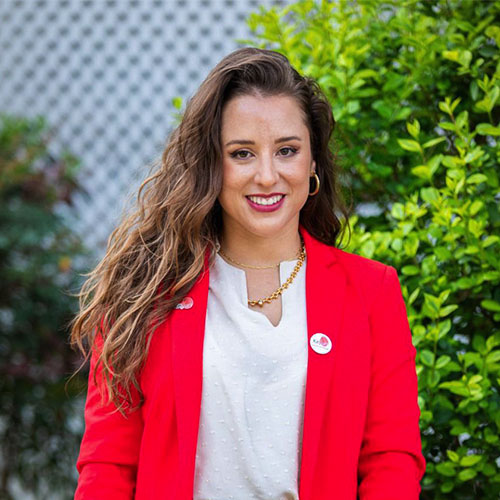
Francisca Gonzalez
fdrgc@uw.edu
Analysis of the Tent City 3 (TC3) Stay at UW During Winter Quarter 2023
PRACTICUM SITE: Seattle Housing and Resource Effort
SITE SUPERVISOR: Michele Marchand
DEPARTMENT: Global Health
FACULTY ADVISER: Amy Hagopian
I am a second-year MPH GH-HME student interested in non-communicable diseases and the processes to provide healthcare. For my practicum, I had the amazing opportunity to work with Tent City 3 (TC3), a self-managed encampment of homeless people that was hosted by UW in Winter quarter 2023. I evaluated the impact of their stay both in the UW community and TC3's residents, regarding thoughts, feelings, perceptions, and needs. I did it by applying different surveys to each type of stakeholder, and by conducting focus groups with homeless folks. TC3 also stayed at UW in 2017 and 2021, and since there was data available from 2017, I was able to compare findings between 2017 and 2023. We hope to publish our findings in a peer reviewed journal with the objective to show other state universities that it is possible and desirable that educational institutions have an active engagement in fighting against the homelessness crisis in the US, especially in the west coast, and that providing care and support to the most vulnerable populations should be an intrinsic part of institutions like UW.
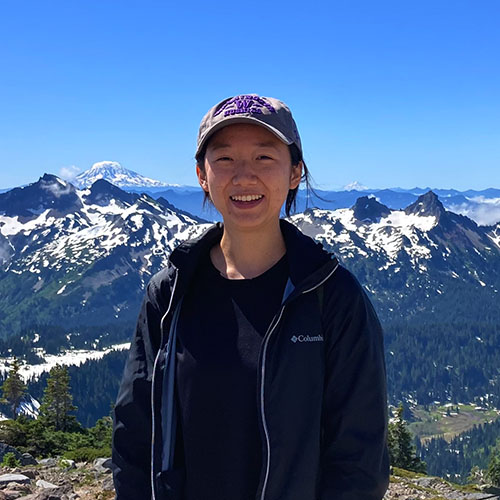
Erh-Chi Hsu
echsu@uw.edu
Assess the Needs of Asian American Dementia Caregivers and Understand the Role of ICHS PACE Day Center in Mitigating Dementia Care Burden
PRACTICUM SITE: International Community Health Services PACE at Legacy House
SITE SUPERVISOR: Kannie Chim
DEPARTMENT: Health Systems & Population Health
FACULTY ADVISER: Clarence Spigner
I am a second-year MPH candidate in the Department of Health Services. My practicum project aimed to assess the needs of Asian American dementia caregivers using in-depth interviews with family caregivers enrolled in the International Community Health Services (ICHS), All-Inclusive Care for the Elderly (PACE) program. Due to the COVID-19 pandemic, the ICHS Day Center paused for two years, and gradually reopened at the end of June 2022. I developed an interview guide based on Health Belief Model and the National Institute on Minority Health and Health Disparities (NIMHD) framework, conducted multi-lingual interviews with 17 dementia caregivers, applied thematic analysis, organized themes from individual to societal levels, and presented the findings to the PACE team in improving and reforming a new version of Day Center post pandemic.
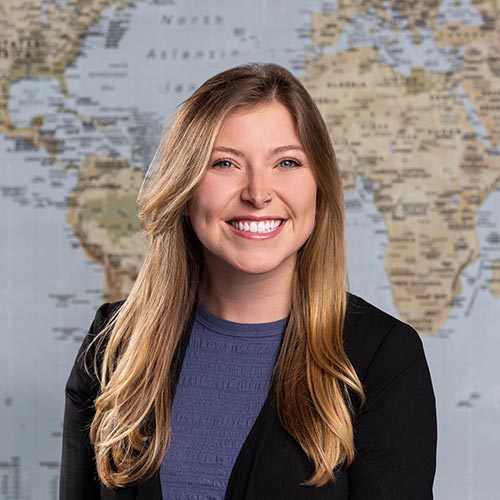
Erin Ingle
ingleea@uw.edu
Tanzania Foundation
PRACTICUM SITE: Health Tanzania Foundation
SITE SUPERVISOR: Cyprian Chilowaka
DEPARTMENT: Global Health
FACULTY ADVISER: Henry Ziegler
I am a second-year masters student in the department of global health at the University of Washington. I completed my practicum at the Buguruni Anglican Health Centre with Health Tanzania Foundation in Buruguni neighborhood of Dar es Salaam. I worked as a part of Health Tanzania Foundation’s SEET program, supporting their initiatives along with the MOH in expanding access to universal primary health insurance and equitable family planning services. Along with the HTF team, I created Family Planning Knowledge-Attitude-Practice surveys (KAP) and conducted focus groups discussing adolescent health and the role of family planning. Through this experience, I enhanced my public health skills in community outreach and cross cultural collaboration and contributed to a project expanding equitable access to reproductive healthcare in this community.

Russell Javan
rcj8@uw.edu
Improving Digital Equity in Underserved Communities
PRACTICUM SITE: Health Promotion Research Center
SITE SUPERVISOR: Marlana Kohn
DEPARTMENT: Health Systems & Population Health
FACULTY ADVISER: Linda Ko
I am a second-year MPH student in the Health Systems and Population Health department with a concentration in social and behavioral science. For my practicum, I joined the Enhance Fitness Trial research team. The COVID-19 pandemic protocols such as social distancing and isolation resulted most in-person services to be remote. Because of this, underserved communities were more likely to encounter additional barriers when accessing services. To further understand the digital divide, I conducted qualitative interviews with key stakeholders. I asked questions surrounding the perception of broadband infrastructures and solutions towards digital equity. A rapid analysis was later conducted. Lastly, a resource guide was created to provide information about various organizations and services available in the United States.
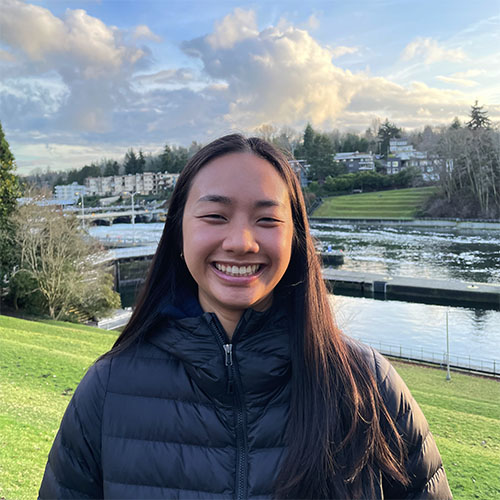
Jessica Luong
jstluong@uw.edu
Expanding Healthy Food Access through Policy and Advocacy in Farm to Food Bank Programs and the Nutritional Assistance Program (NAP) in U.S. Territories
PRACTICUM SITE: Center for Science in the Public Interest
SITE SUPERVISOR: Cassie Ramos
DEPARTMENT: Health Systems & Population Health
FACULTY ADVISER: Clarence Spigner
I am a second-year MPH student in Health Systems and Population Health (Health Systems and Policy concentration). I am interested in how policy can change social contexts to increase access to food that is healthy and culturally meaningful. For my practicum, I worked with the Center for Science in the Public Interest (CSPI) and contributed to hosting a listening session with Nutrition Assistance Program (NAP) administrators from the Commonwealth of the Northern Mariana Islands to learn about the challenges in food insecurity and related food benefit programs for U.S. territories. We incorporated their recommendations into a letter written for the White House Conference on Hunger, Nutrition and Health. Additionally, I conducted a policy scan of state-level Farm-to-Food-Bank programs to inform CSPI’s FTFB policy campaign and grant-making. In my free time, I enjoy hiking, cooking new soups, and discovering Seattle's many restaurants and breweries.
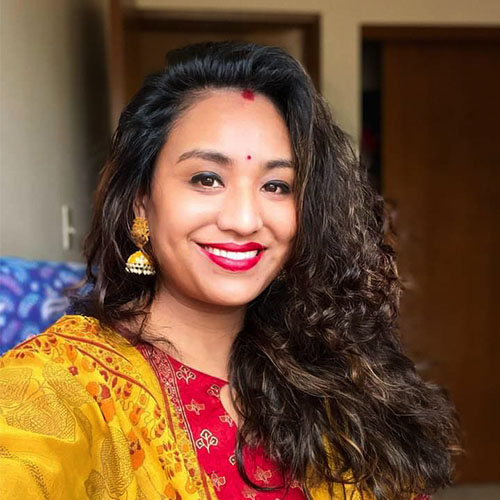
Priyasha Maharjan
pmahar@uw.edu
Afghan Nutrition Project
PRACTICUM SITE: Harborview Medical Center - EthnoMed
SITE SUPERVISOR: Ehsan Shayegan
DEPARTMENT: Global Health
FACULTY ADVISER: Donna Denno
I am a second-year MPH student in the Department of Global Health. For my practicum, I worked with EthnoMed program at Harborview Medical Center to create a culturally tailored nutrition education resource for the Afghan community in Seattle. Using an interpreter, I talked to the women in the community to gather information about the cultural practices and beliefs around food - focusing on the everyday food consumption behavior, culturally and religiously significant foods. Based on the collected information and literature review, I developed a photo-based nutrition/food guide that will be available in English and Pashto languages. This will serve as a handy source of information for both the community members seeking health care and dieticians providing nutrition consultation. The EthnoMed engagement was a wonderful opportunity to gain valuable professional skills. Outside of school and work, I enjoy cooking, painting and other creative activities.
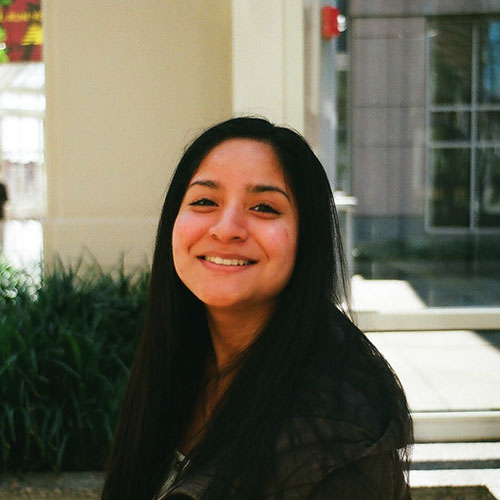
Liz Mariluz
mariluzl@uw.edu
Rural Healthcare Facility Outreach: Understanding Barriers & Facilitators to Infection Prevention
PRACTICUM SITE: Washington State Department of Health - Healthcare Associated Infections Program
SITE SUPERVISOR: Mary Whittington
DEPARTMENT: Health Systems & Population Health
FACULTY ADVISER: Molly Firth
I am a second-year MPH candidate with a focus in Health Systems & Policy. I am originally from Boston, MA and I moved to Seattle last year. I completed my practicum during the Summer 2022 with the Healthcare-Associated Infections and Antimicrobial Resistance (HAI & AR) Program at the Washington State Department of Health. Their program was seeking to understand how they can better assist rural healthcare facilities with reporting and preventing HAIs. I am broadly interested in improving health equity at a systemic level, so I thought this was a great opportunity to learn about public health at the state government-level while also getting to learn about a new topic such as Healthcare-Associated Infections and Antimicrobial Resistance.

Ayan Mohamed
ayanm27@uw.edu
Lead and Toxic Education - Housing Action
PRACTICUM SITE: Somali Health Board
SITE SUPERVISOR: Mohamed Shidane
DEPARTMENT: Health Systems & Population Health
FACULTY ADVISER: Linda Ko
I'm a second year MPH student in the Health Systems and Population Health Department, Social and Behavioral Sciences Concentration. For my practicum, I worked with Somali Health Board on the Lead and Toxic Education- Housing Action. It is a project led by the Somali Health Board in collaboration with Public Health-King County, Horn of Africa Services, and Cultivate South Park. The goals of this project is building community capacity and knowledge of housing rights and protection, strengthening partnerships between community and housing providers, improving policies and systems in place to promote lead-free healthy housing, and educating housing providers and focusing on communities on the dangers of lead and healthy housing principles through providing educational material on lead. My role was to organize, execute, and do outreach for lead education events, attend stakeholder meetings, research lead housing policies, and complete a write up once the events were conducted. From this experience I was able to gain the skills of community outreach and collaboration, strengthening partnerships with community organizations, building capacity and knowledge on housing rights and protection.
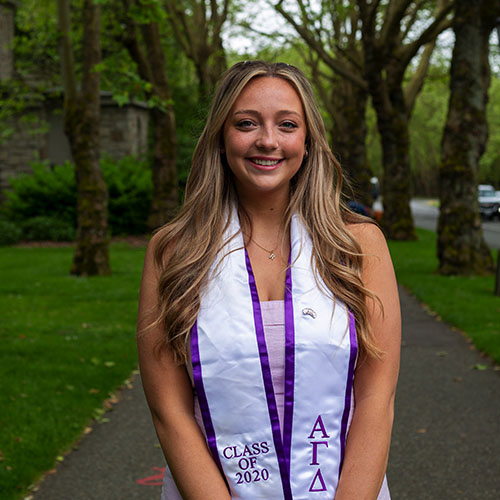
Rachael Peterson
rsp98@uw.edu
Potential Host Sites for Seattle Housing and Resource Effort (SHARE)
PRACTICUM SITE: Seattle Housing and Resource Effort
SITE SUPERVISOR: Michele Marchand
DEPARTMENT: Health Systems & Population Health
FACULTY ADVISER: Amy Hagopian
For my project with SHARE, I conducted searches for potential shelter sites for both indoor and outdoor facilities. This included using resources such as the City Annual Property Report, previous student contributions to site searches, and scouting by driving or walking throughout the locations specified by SHARE. This aligned with the needs of SHARE because they are always in critical need for future host sites for their TentCity locations as well as their indoor shelter sites. By creating a list of potential sites for them to reach out to aid in the process of securing shelter for the homeless community that they serve.
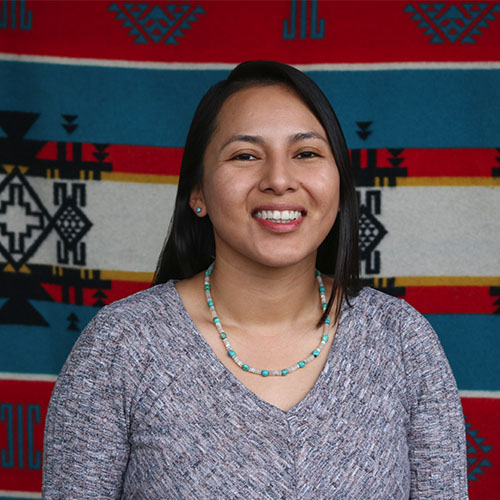
Brandi Reano
breano@uw.edu
Raise the Wage Campaign: A Ballot Initiative to Raise the Minimum Wage in Tukwila, WA
PRACTICUM SITE: Transit Riders Union
SITE SUPERVISOR: Transit Riders Union
DEPARTMENT: Health Systems & Population Health
FACULTY ADVISER: Katie Wilson
I am a second-year MPH student in Health Systems and Population Health, Generalist track. My research interests include community based participatory research/tribal participatory research (CBPR/TPR), mental health and suicide prevention, and food sovereignty. For my practicum project, I collaborated with the Transit Riders Union on shaping a ballot initiative to improve wages & working conditions in Tukwila. I engaged in canvassing activities to learn more about the attitudes and experiences of Tukwila voters, workers and residents who may or may not be registered/eligible to vote. We addressed the problem of low-wages as it relates to the social determinants of health, more specifically we addressed how low-wages negatively affect housing, food, and financial security in addition to having negative effects on mental health. My practicum experience taught me how to conduct semi-structured interviews and consolidate personal narratives to support a health equity campaign.
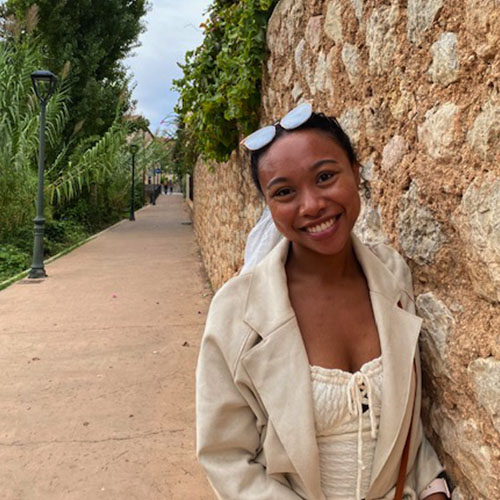
Felicidad Smith
felsmith@uw.edu
Examining the Barriers and Facilitators of SNAP Participation at Farmers Markets in South King County
PRACTICUM SITE: Public Health Seattle & King County - Healthy Eating Active Living
SITE SUPERVISOR: Seth Schromen-Wawrin
DEPARTMENT: Health Systems & Population Health
FACULTY ADVISER: Meagan Brown
I am a second year MPH student in the Health Systems and Population Health Department. My primary research interest is methods of promoting food security in the United States. For my practicum project I worked with Public Health -- Seattle & King County to understand why participants of the Supplemental Nutrition Assistance Program (SNAP) do or do not shop at farmers markets. Individuals who participate in SNAP can receive a dollar-for-dollar match when purchasing food at the farmers market, which can double their purchasing power to incorporate more fruits and vegetables into their diets. However, SNAP redemption at farmers markets is low, particularly among farmers markets located in South King County. For my practicum, I created a survey that was distributed to SNAP participants in South King County that explored the barriers preventing them from shopping at the farmers markets and what can be done to encourage them to visit.
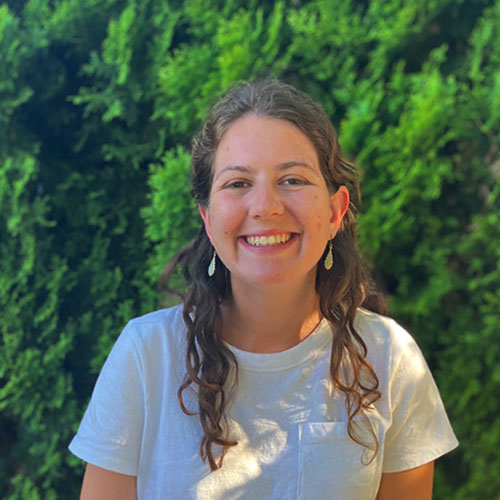
Elena Soyer
esoyer@uw.edu
Rural Health Transportation Resources & Considerations
PRACTICUM SITE: Washington State Department of Health Office of Rural and Community Health
SITE SUPERVISOR: Claire Horton
DEPARTMENT: Health Systems & Population Health
FACULTY ADVISER: Stephanie Farquhar
I am a second year MPH student in the Health Systems and Population Health Department (Health Systems & Policy track). For my practicum, I worked with the Rural Health Team at the Washington State Department of Health on a project related to health care transportation in rural areas. I compiled a resource library for the team that includes background on public transportation in rural Washington, state and federal policies, the overlap between public health transportation, case studies, data sources, and funding opportunities. I also partnered with a team at the Washington Health Care Authority to interview health care system/hospital staff and transportation professionals about challenges and opportunities for non-emergency transportation. These interviews culminated in an internal memo that will help inform transportation-related strategic priorities for the Community Health Access and Rural Transformation grant.
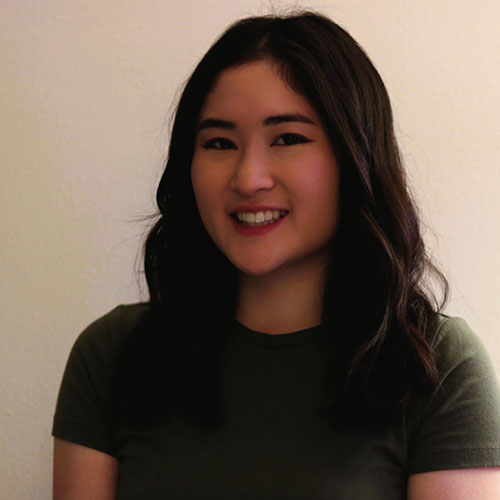
Lina Truong
truongl@uw.edu
Displacement of Individuals Experiencing Homelessness: A Case Study of the I-5 Encampment Sweeps in “The Jungle”
PRACTICUM SITE: REACH Evergreen Treatment Services
SITE SUPERVISOR: Karen Salinas
DEPARTMENT: Health Systems & Population Health
FACULTY ADVISER: Christine Hurley
I am a second-year MPH candidate in the Department of Health Systems and Population Health. For my Practicum, I worked with REACH Evergreen Treatment Services' Outreach Program. This program prioritizes harm reduction and focuses on activities that build trust and relationships with clients. Outreach staff then link clients to referrals and stabilizing resources (e.g., medical care, housing, food). In 2016, there was a significant encampment removal at a location called “The Jungle”. “The Jungle” is a 150 acre stretch of land under I-5 between I-90 and Georgetown with encampment sites dispersed throughout. Encampment removals disrupt an individual’s access to stabilizing resources which may lengthen the duration of homelessness. The primary question for my project was: How do encampment removals interfere with individuals experiencing homelessness and their access to resources and stabilizing services? A primary goal of my Practicum was to conduct exploratory analysis on the movement of individuals after the 2016 I-5 Jungle encampment removals to determine if they reconnected with services.
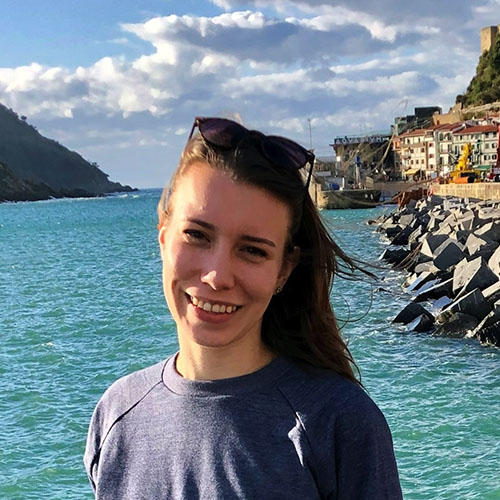
Olga Vitruk
vitruo@uw.edu
Creation of Mental Health Portion of EthnoMed Ukrainian Profile
PRACTICUM SITE: Harborview Medical Center - EthnoMed
SITE SUPERVISOR: Ehsan Shayegan
DEPARTMENT: Epidemiology
FACULTY ADVISER: Nancy Puttkammer
I am a second year MPH candidate in Epidemiology. For my practicum, I worked with Ethnomed, a program within Harborview Medical Center. This program focuses on producing social and cultural resources for healthcare providers to support the delivery of cross-cultural clinical care for immigrants and refugees. The deliverable was creating the mental health portion of EthnoMed's Ukraine cultural profile, with a focus on services for Ukrainian refugees in the US and Seattle specifically. The objective was to understand the mental health landscape in Ukraine, along with how the Ukrainian community engages with mental health resources in our community. I conducted a literature search and interviewed community members and medical professionals that work with this population. In my free time, I love to play tennis, draw and travel.
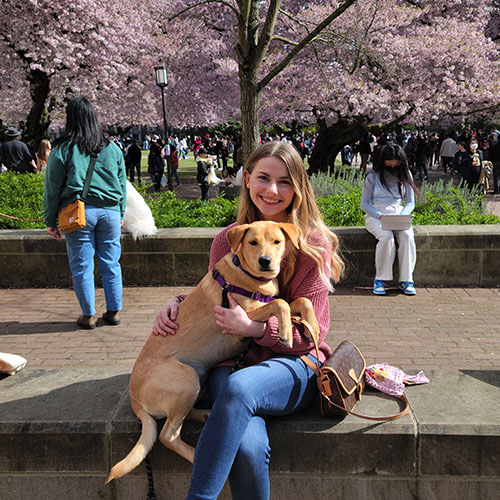
Allison Welch
welcha3@uw.edu
Developing a Toolkit to Increase Historically Underserved Population Enrollment & Participation in Clinical Research Trials at Swedish First Hill Campus
PRACTICUM SITE: Swedish Medical Center
SITE SUPERVISOR: Adam Bograd
DEPARTMENT: Health Systems & Population Health
FACULTY ADVISER: Clarence Spigner
I am a second year Master of Public Health Candidate in the Health Systems and Population Health concentration. I am particularly interested in access to cancer screening for historically underserved populations and tobacco abuse studies among young adults. For my practicum, I worked with Swedish Cancer Institute and Swedish Medical Center First Hill to create a toolkit to aid in the recruitment of historically underserved populations in clinical trials. Equitable access to clinical trials is essential for ensuring that the results of clinical trials are generalizable and allow all populations access to new advanced treatment options.

Omolara Akingba
oakingba@uw.edu
Seattle HIV Planning Council 2022 Survey Analysis
PRACTICUM SITE: Public Health - Seattle and King County HIV/AIDS Planning Council
SITE SUPERVISOR: Karen Chung
DEPARTMENT: Epidemiology
FACULTY ADVISER: Susan Buskin
I am a second-year epidemiology MPH student interested in infectious diseases, particularly STIs. I am also interested in reproductive epidemiology. The goal of my practicum was to assist the Seattle HIV Planning Council with making key decisions about the use of the Ryan White Part A funding (~$7 million) for HIV care services in the Seattle Transitional Grant Area (TGA) for people living with HIV who are uninsured or underinsured. This project included creating consumer and provider needs assessment surveys in REDCap, analyzing survey responses in Microsoft Excel and R Studio, and summarizing the results in appropriate diagrams to be presented at a monthly meeting to the council. This project allowed me to gain experience conducting public health research and appropriately presenting data to individuals who may not have an epidemiology background. In my free time, I enjoy cooking, reading, watching anime, and occasionally crocheting.
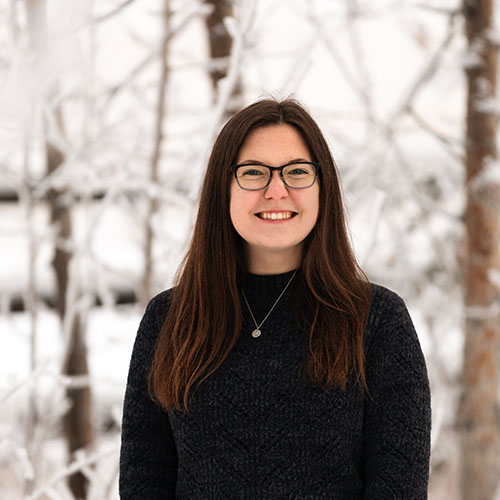
Piper Brase
pbrase@uw.ed
Developing a Communications Toolkit for the WA State Department of Health Molecular Epidemiology Program
PRACTICUM SITE: Washington State Department of Health Office of Communicable Disease Epidemiology
SITE SUPERVISOR: Marcela Torres
DEPARTMENT: Epidemiology
FACULTY ADVISER: Brandon Guthrie
I am a second year Epidemiology MPH student with interests in infectious disease surveillance and outbreak response. I first became interested in molecular epidemiology after hearing a guest lecture during the SEAL Team class last spring. I then completed my practicum with the WA State Department of Health (DOH) Molecular Epidemiology Program. The goals of my practicum were to become familiar with molecular epidemiology tools and to help develop communication materials highlighting the importance of genomic data for surveillance and response activities for multiple infectious diseases. My final deliverables included a written summary of a SARS-CoV-2 cluster analysis, a slide deck highlighting molecular epidemiology tools and use cases and a one pager highlighting the goals and support provided by Molecular Epidemiology Program.
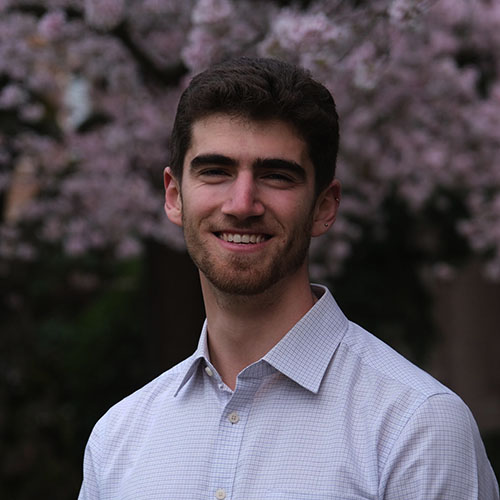
Benjamin Bryer
bbryer@uw.edu
Monitoring the Impacts of Cold-Related Illness (CRI) in King County, WA
PRACTICUM SITE: Public Health - Seattle and King County (PHSKC) Assessment, Policy Development & Evaluation (APDE)
SITE SUPERVISOR: Hannah Collins
DEPARTMENT: Epidemiology
FACULTY ADVISER: Christine Khosropour
I am a second-year MPH candidate within the department of Epidemiology. For my practicum, I wanted to gain experience within a local public health practice environment. I connected with epidemiologists in the Assessment, Policy Development and Evaluation unit (APDE) at Public Health – Seattle & King County and developed a project to inform winter weather preparedness efforts in King County. My main deliverable was an automated code file in R Markdown to track emergency department visits for winter-related health outcomes such as cold-related illness (hypothermia and frostbite), snow and ice injuries (slips and falls), traffic-related injuries, and unintentional carbon monoxide poisoning. The practicum experience taught me critical skills in R coding, independent working, and time management, and inspired me to start my career at the local level.
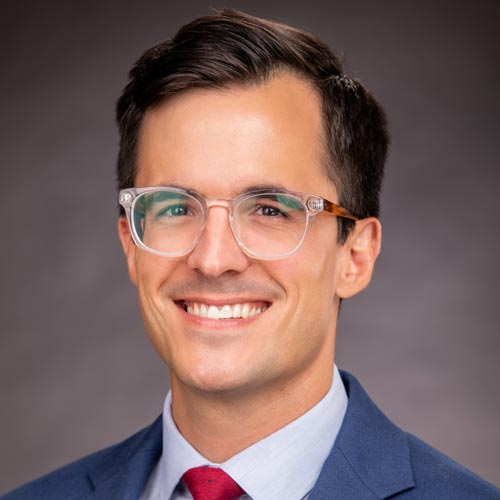
Taylor Coston
costontd@uw.edu
Analysis of Pre-referral Antibiotic Practices and Outcomes Among Adults with Sepsis Referred to a Tertiary Care Center in Northeast Thailand
PRACTICUM SITE: Mahidol-Oxford Tropical Medicine Research Unit
SITE SUPERVISOR: Direk Limmathurotsakul
DEPARTMENT: Global Health
FACULTY ADVISER: T. Eoin West
I am a second-year MPH student in the Department of Global Health and a third-year pulmonary, critical care, and sleep medicine fellow. My research focuses on pneumonia and sepsis in diverse clinical settings, particularly low- and middle-income countries where the burden is greatest, yet the least evidence is available. For my practicum I was privileged to work with MORU, a multidisciplinary organization in Bangkok with a wide range of projects to combat sepsis, which is a dysregulated host immune response to infection and a major cause of morbidity and mortality globally. During this experience, I analyzed data from a prospective cohort of 3006 adult patients referred from community hospitals to a tertiary care center (Sunpasitthiprasong Hospital) in Northeast Thailand for treatment of sepsis. Our aims were to determine what factors were associated with pre-referral antibiotic administration and assess if pre-referral antibiotic use was associated with outcomes. During this project, I also worked with the sepsis coordination team at Sunpasitthiprasong Hospital and learned about sepsis diagnosis, referral infrastructure, and sepsis management in a unique clinical context. This practicum is still underway; when I return to Seattle I will complete the analysis remotely and reflect on my experiences.
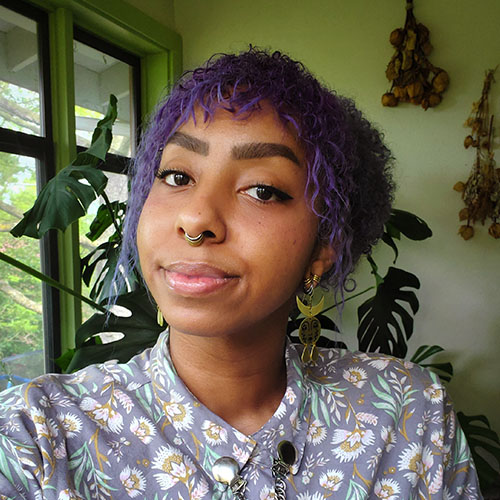
Aaron Davis
aarond23@uw.edu
Communicable Disease Surveillance and Outbreak Web Page Development
PRACTICUM SITE: Washington State Department of Health - Communicable Disease Epidemiology
SITE SUPERVISOR: Beth Melius
DEPARTMENT: Epidemiology
FACULTY ADVISER: Daniel Enquobahrie
I am a second-year MPH student in Epidemiology on the Maternal and Child Health track. My research interest includes the life-course health impacts of racism, social determinants of health, and child mental health outcomes. For my practicum project, I interned at the Washington Department of Health Office of Communicable Disease Epidemiology to create a public-facing investigation/ foodborne disease surveillance guide and foodborne disease fact sheet for disease prevention related to foodborne and enteric illnesses. This health communication was tailored to educate general populations of all ages. My practicum experience helped deepen my knowledge in conducting a thorough literature review and exposed me to the various styles and methods of health communications currently employed by departments of health across the US. I gained valuable insight from the team of epidemiologists regarding foodborne disease outbreaks. I look forward to a career in public health that allows me to continue increasing public access to scientific knowledge and processes. Outside of school and work, I am a parent, community activist and abolitionist, and visual artist.
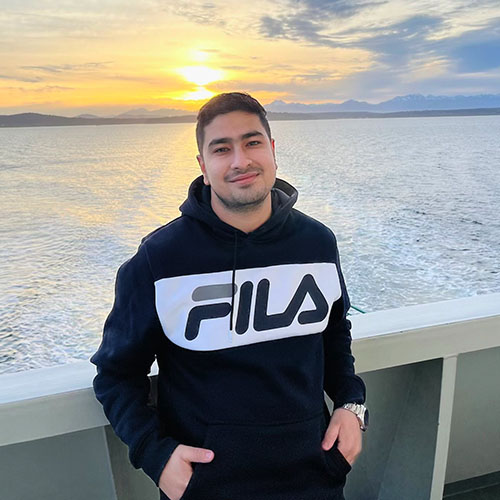
Saurya Dhungel
sauryadh@uw.edu
Creating a Global Nutrition Database and Exploration of the Development and Adoption Process of Public Food Procurement Policies in Low and Middle-Income Countries
PRACTICUM SITE: Resolve to Save Lives
SITE SUPERVISOR: Nicole Ide
DEPARTMENT: Epidemiology
FACULTY ADVISER: Annette Fitzpatrick
I am an MPH candidate in the Department of Epidemiology. I got an opportunity to work in Resolve To Save Lives, an NGO working on cardiovascular disease and epidemics, for my practicum. First, I worked to create a Global Nutrition Database for which I reviewed published literature on sugar, saturated fat and sodium content in packaged food products around the world. Then, I extracted data from those published articles and plugged them in the Global Nutrition Database according to WHO categories and subcategories of food products and prepared a summary of the methodology used in those studies. Second, I worked in a study to assess the motivators, drivers, and obstacles encountered by key personnel involved in the creation of public food procurement policies in low- and middle-income countries. I worked on preparing the study tool, deductive codebook for the study, data analysis plan and a one-pager summarizing introduction and methodology.
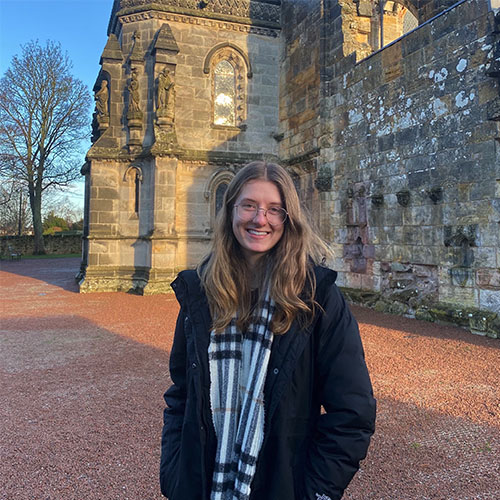
Caitlin Drover
cmd21@uw.edu
Improving Antimicrobial Stewardship Through Assessing Antimicrobial Susceptibility and Prescribing Practices Across Washington State
PRACTICUM SITE: Washington State Department of Health - Healthcare Associated Infections Program
SITE SUPERVISOR: Marisa D’Angeli
DEPARTMENT: Epidemiology
FACULTY ADVISER: Marilyn Roberts
I am a second-year MPH student in the Department of Epidemiology with an interest in infectious diseases. My practicum was with the Washington State Department of Health (DOH) Healthcare-Associated Infections and Antimicrobial Resistance (HAI & AR) Program on the Multidrug Resistant Organisms (MDRO) Team. I worked on one project related to antibiotic stewardship and another project related to antimicrobial susceptibility testing (AST) in Washington. The stewardship project re-created a CDC analysis using WA state data, as well as determined the highest-volume prescribers in WA to target them for outreach efforts to improve antibiotic prescribing practices. The AST project analyzed antibiotic and antifungal susceptibility testing data to help assess resistance patterns to inform good antimicrobial prescribing practices.

Muna Hassan
munah5@uw.edu
Enteric Disease Podcast
PRACTICUM SITE: Washington State Department of Health - Public Health Laboratory
SITE SUPERVISOR: Beth Melius and Nicole Marshall
DEPARTMENT: Epidemiology
FACULTY ADVISER: Janet Baseman
I am a second-year MPH candidate in the Department of Epidemiology. For my Practicum, I worked with the Washington Integrated Food Safety Center of Excellence. The Washington Integrated Food Safety Center of Excellence focuses on supporting local and state public health agencies in strengthening and improving food safety measures and foodborne illness surveillance/response. The center also develops various dissemination and communication tools related to foodborne and enteric illnesses as a resource. This project aimed to produce a literature & audio review of the public health and food safety landscape to identify gaps in knowledge generation as well as disseminate and implement best practices in foodborne disease epidemiology. This practicum position built foundational knowledge and helped develop materials for producing a podcast.
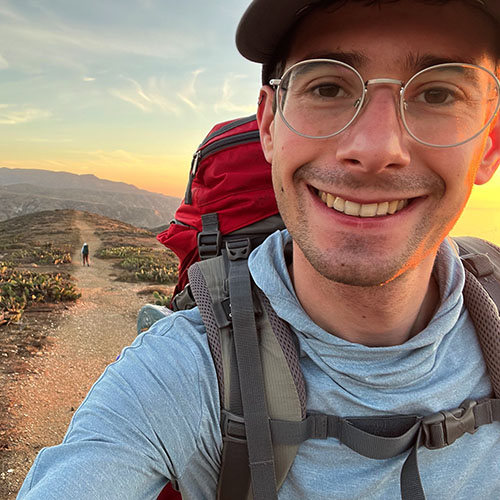
Ethan Kahn
ekahn100@uw.edu
Monitoring the Progress of a Multi-State Initiative to Collect and Report HIV Viral Suppression Levels
PRACTICUM SITE: National Association of State & Territorial AIDS Directors
SITE SUPERVISOR: Auntré Hamp
DEPARTMENT: Global Health
FACULTY ADVISER: Laura Dwyer-Lindgren
I am an MPH student in the Global Health - Health Metrics and Evaluation track. I also work at the Institute for Health Metrics and Evaluation, where I model the burden of diseases attributable to risk factors in US counties stratified by race. For my practicum, I joined the National Alliance of State and Territorial AIDS Directors (NASTAD). NASTAD coordinates an initiative to help nine states collect and report the HIV viral suppression measure for Medicaid quality reporting. I designed an interactive dashboard to track states’ progress through the initiative. I also planned a process evaluation to assess the impacts of NASTAD’s activities on states’ achievement of project milestones. This practicum exposed me to the complexities of data collection spanning multiple divisions of the state government. I most enjoyed seeing the active collaboration between NASTAD and its state, federal, and academic partners.
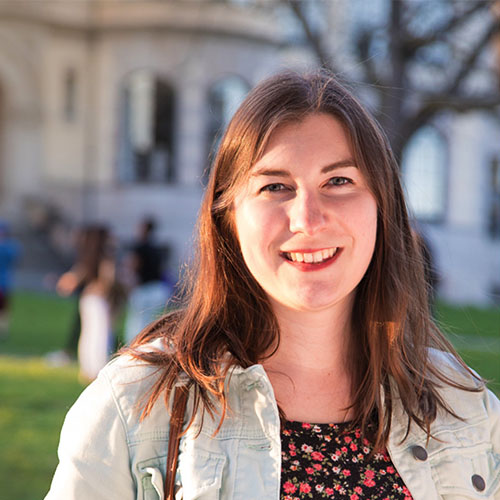
Laura Mummert
lamumme@uw.edu
Cardiovascular Syndrome Development for Surveillance on Indirect Effects of Heat in Washington State
PRACTICUM SITE: Washington State Department of Health - Center for Health Statistics
SITE SUPERVISOR: Kali Turner
DEPARTMENT: Epidemiology
FACULTY ADVISER: Christine Khosropour
I am a second-year MPH Epidemiology student interested in public health practice, infectious disease, and One Health. For my practicum, I worked with the Washington Department of Health (DOH) Rapid Health Information Network (RHINO) team. We collaborated with CDC's National Syndromic Surveillance Program to create cardiovascular-related syndromes to eventually be adopted as national syndromic definitions that can be used by other state and local surveillance efforts. We were able to make syndromes for stroke, heart attack, and chronic heart failure. These newly developed syndromes were then used to analyze cardiovascular conditions resulting in emergency department visits during the WA Heat Dome Event of 2021. Through this practicum I gained experience using syndromic surveillance tools, analyzing electronic medical record data, and creating reports in R.
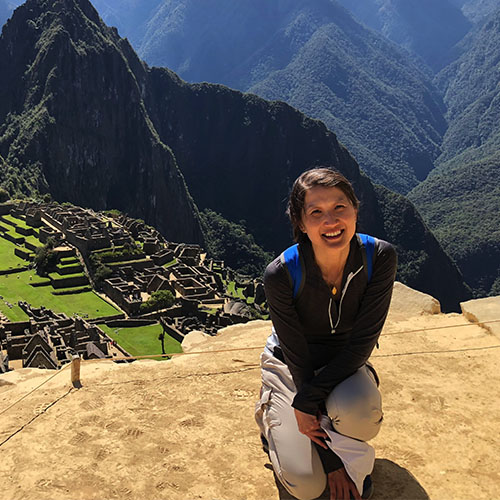
Yue-Harn Ng
yharn1@uw.ed
Outbreaks for Persons Experiencing Homelessness ToolkitUsing National Healthcare Safety Network (NHSN) Data to Determine Infection Patterns at Dialysis Units in Washington State
PRACTICUM SITE: Washington State Department of Health - Public Health Laboratory
SITE SUPERVISOR: Miriam Mina
DEPARTMENT: Health Systems & Population Health
FACULTY ADVISER: Molly Firth
I am a second year MPH candidate in the Health Systems and Policy concentration. I am a nephrologist at UWMC and over the years, have seen significant disparities in access to kidney care especially in the marginalized population. My goal is to address disparities through multi-targeted approaches from policy advocacy at the systemic level to community engagement at the individual level. In 2022, the Washington (WA) state Department of Health launched the dialysis unit Infection Control Assessment and Response (ICAR) with the goal of assisting dialysis units in their assessment of infection control and practices. For my practicum, I used the National Healthcare Safety Network (NHSN) data to assess: 1) the infection patterns of dialysis units in WA state; 2) to identify factors that influence infection rates in dialysis units. The aim was to use NHSN data to identify dialysis units that would benefit from dialysis ICAR.
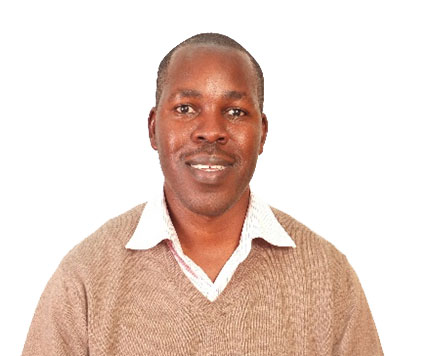
Victor Omballa
omballa@uw.edu
Afya Hatua Program
PRACTICUM SITE: I-TECH Tanzania
SITE SUPERVISOR: Katherine Wilson
DEPARTMENT: Global Health
FACULTY ADVISER: Caryl Feldacker
I am a first-year MPH, Global Health student. My background is in infectious diseases, laboratory management, project management, and epidemiology. I previously worked in population-based surveillance, sentinel surveillance, and outbreak response throughout countries in sub-Saharan Africa. Prior to joining UW, I worked at the Centers for Global Health Research at the Centers for Disease Control and Prevention (Kenya) and later with Bioreference Laboratories (New Jersey) where I oversaw all the COVID-19 testing for all the major sports teams in Oregon and Washington State including all the cruise ships departing from Seattle. I also wrote grants with UW ITECH on supporting workforce and infrastructure development in selected developing countries while also teaching Global Health to undergraduate students at UW during the winter period. I’m currently a Research Assistant with UW, Department of Global Health working with the DeWorm 3 team to understand the impact of Mass Drug Administration (MDA) on Soil Transmitted Helminthes. For my practicum, I worked with UW I-TECH Tanzania where I evaluated Continuous Quality Improvement (CQI) systems designed to improve HIV clinical care in 46 healthcare facilities in three regions of Tanzania and provided feedback to I-TECH to inform ongoing mentoring work.

Pyone Yadanar Paing
ppaing2@uw.edu
Outbreaks for Persons Experiencing Homelessness Toolkit
PRACTICUM SITE: Washington State Department of Health - Washington Integrated Food Safety Center of Excellence
SITE SUPERVISOR: Soyeon Lippman
DEPARTMENT: Epidemiology
FACULTY ADVISER: Janet Baseman
I am a second-year MPH Epidemiology candidate. My research interests are chronic disease epidemiology, field epidemiology and evidence-informed public health policy. For my practicum, I worked with Washington Integrated Food Safety Center of Excellence to conduct foundational research in developing a toolkit for responding to common infectious disease outbreaks among people living homeless (PEH). My role was to explore and evaluate resources for preventing and responding to infectious disease outbreaks among PEH, with the ultimate objective of developing the toolkit, which provides resources for responding to those outbreaks. This work involved developing a literature review summarizing best practices of outbreak investigation strategies, drafting a toolkit outline, and building a repository of education materials. Through this practicum, I gained skills in applying field epidemiology concepts towards outbreak response among PEH and experiences on evidence-informed decision making, which will contribute to my future career as an epidemiologist.
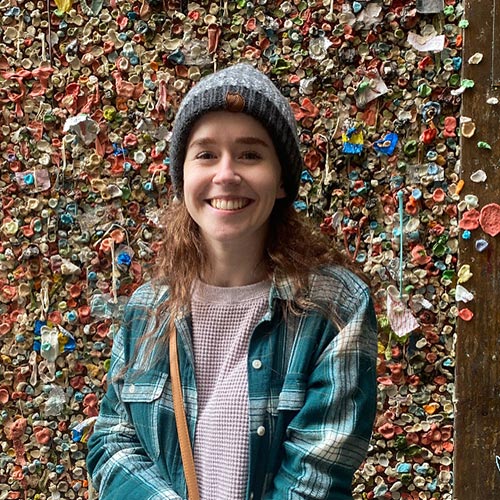
Keely Paris
ksparis@uw.edu
Understanding Healthcare‐Associated Infections (HAI) and Antimicrobial Resistance (AR) in Washington through Whole Genome Sequencing and Spatial Epidemiology
PRACTICUM SITE: Washington State Department of Health - Healthcare Associated Infections Programs
SITE SUPERVISOR: Marisa D'Angeli
DEPARTMENT: Epidemiology
FACULTY ADVISER: Alison Fohner
I am a second-year MPH student in Epidemiology with interests in communicable disease and antimicrobial resistance. For my practicum, I worked with the Washington State DOH Healthcare-Associated Infections and Antimicrobial Resistance (HAI/AR) section on three projects involving spatial epidemiology and whole genome sequencing (WGS) data. My duties included the spatial mapping of hemodialysis facilities in the state using NHSN data, a literature review on carbapenemase production in Pseudomonas and Acinetobacter species to inform WGS priorities, and a descriptive analysis of WGS data using isolates from Washington healthcare facilities. Ultimately, my deliverables will be used to identify and ameliorate healthcare inequities in the state and to gain a better understanding of the successes of existing infection control procedures. I am incredibly grateful to the DOH HAI/AR team for giving me this amazing opportunity.

Leigh Sheridan
sherlx2@uw.ed
Hearts and Minds: Examining Cardiovascular Disease and Depression in the 2017-2019 Medicaid Population
PRACTICUM SITE: Public Health Seattle & King County - Assessment, Policy Development & Evaluation Unit
SITE SUPERVISOR: Danny Colombara
DEPARTMENT: Epidemiology
FACULTY ADVISER: Nicholas Smith
Working with Seattle-King County Public Health, I worked to examine the burden of cardiovascular disease and comorbid depression in our county's Medicaid population. My findings showed that, given a cross-sectional analysis of the population over three years, there was a significantly higher burden of depression among cardiovascular disease patients in this population. Using my results from these analyses, I constructed and presented results and several evidence-based interventions to the King County Medicaid Authority. My overall goal for this project was to present credible evidence and recommendations to a body (Medicaid) that makes important policy decisions regarding the health of low-income individuals in our community.
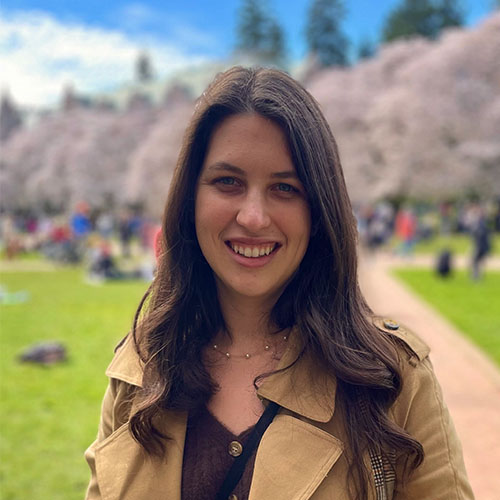
Margaret Banks
banksme@uw.ed
Municipal Ordinances Widening Inequities for the Visibly Poor: Criminalization of Homelessness, One City at a Time
PRACTICUM SITE: American Civil Liberties Union of Washington
SITE SUPERVISOR: Breanne Schuster
DEPARTMENT: Health Systems & Population Health
FACULTY ADVISER: Amy Hagopian
I am a second year MPH student in the HSPop Health Systems and Policy track, interested in sexual and reproductive health policy and science communication. For my practicum, I wanted to gain policy analysis experience. I worked with the ACLU-WA to update an existing report evaluating how city ordinances indirectly criminalize homelessness and how those ordinances have evolved since the original report was compiled. Working with my co-author, we searched for new ordinances and followed up on previously documented ordinances, recording whether they were still in place or had been repealed. Additionally, we requested enforcement data from five cities to investigate patterns. Working with attorneys in an organization focused on the law helped me strengthen interprofessional communication skills and develop skills for reading and researching policy. In my free time I enjoy spending time outdoors, listening to podcasts and music, and cooking with my friends.
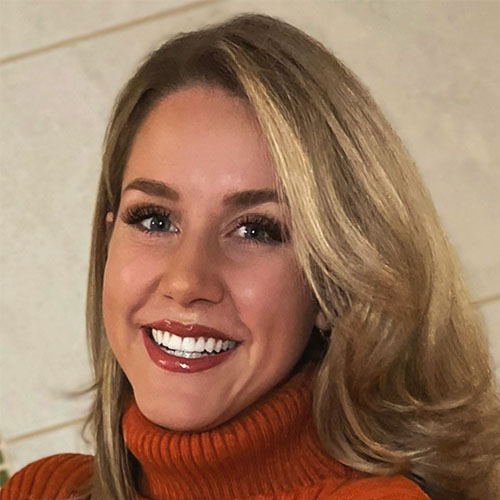
Madeline Brockert
brockert@uw.edu
Analysis of Intimate Partner Violence Police Calls and the Mandatory Arrest Rule in Washington State
PRACTICUM SITE: Washington State Coalition Against Domestic Violence
SITE SUPERVISOR: Jake Fawcett
DEPARTMENT: Health Systems & Population Health
FACULTY ADVISER: Molly Firth
I am a second year MPH-Health Systems and Population Health student concentrating on Health Systems and Policy. I am particularly interested in behavioral health where I have been focusing on intimate partner violence and suicide prevention. For my practicum, I worked with the Washington Coalition Against Domestic Violence (WSCADV) to conduct a preliminary analysis of intimate partner violence (IPV) police calls to better understand who is getting arrested. This analysis will help push for further analysis of the current data and additional qualitative research to better understand the impact the Mandatory Arrest Rule has on victims of IPV in Washington. While working with WSCADV, I was also able to help conduct their census, partake in their state-wide conference, and learn about their victim fatality review.
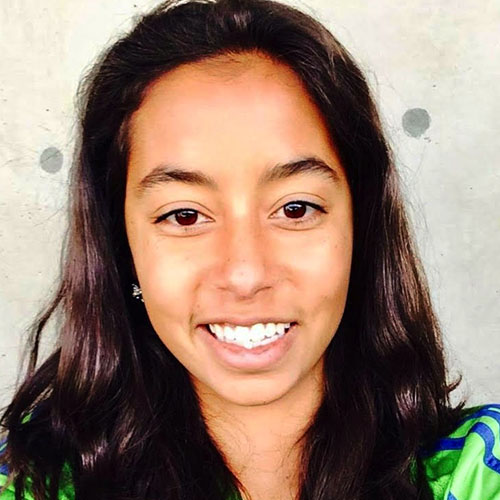
Sydney Rogalla
srogalla@uw.edu
Municipal Ordinances Widening Inequities for the Visibly Poor: Criminalization of Homelessness, One City at a Time
PRACTICUM SITE: American Civil Liberties Union of Washington
SITE SUPERVISOR: Breanne Schuster
DEPARTMENT: Health Systems & Population Health
FACULTY ADVISER: Smadar Ben-Naten
I am an MPH candidate who is passionate about upstream solutions to solve some of the biggest health challenges of our time. In particular, I am interested in using a pro-equity lens to inform policy solutions that address increased health education. For my practicum I worked with the ACLU-WA to update an existing 2015 report about city ordinances used to indirectly criminalize homelessness. The primary purpose of this report was to establish how ordinances that criminalize homelessness have changed and how they were being enforced. Working with my partner, we documented existing, new, and repealed ordinances over the seven year period and requested enforcement data from five cities to establish patterns of enforcement. During this project I developed my interprofessional communication skills and proficiency with searching and reading policies which will support my future goals of collaborative policy level solutions. In my free time I enjoy reading, yoga, and cooking.

Than Aung
taung2@uw.edu
Contribute to an Overall Program That Can be Passed on to Another Agency or Entity to Assist AFHs with Compliance to the WAC 296-842 Safety Standard for Respirators
PRACTICUM SITE: Washington State Public Health Laboratory
SITE SUPERVISOR: Stella Daniels
DEPARTMENT: Global Health
FACULTY ADVISER: Amy Hagopian
I am a second year Master of Public Health student in the Global Health Department. My primary interests include social determinants of health, health equity, maternal and child health and nutrition. For my practicum project, I worked at the State Depart of Health (Occupational Health) and helped design a project plan to promote the uptake of Respiratory Protection Program for Adult Family Homes in Washington State. Despite significant decrease in COVID-19 infection, Adult Family Homes and other long term care facilities remains as high-risk settings for outbreaks of Covid-19 and their severe outcomes, primarily due to their advanced age, the status of chronic underlying health conditions among residents, and the movement of health care personnel and visitors among the facilities. My aspiration in this project is that the barrier analysis and action planning that I conducted in the practicum would define actionable steps for key stakeholders to maintain and improve prevention and control activities for COVID-19 and other respiratory infections in this unique population.

Chelsea Blanes
blanesc@uw.edu
Intergenerational Communication to Manage the Radioactive and Chemical Waste from Nuclear Weapons at the Hanford Nuclear Site
PRACTICUM SITE: Hanford Challenge
SITE SUPERVISOR: Liz Mattson and Miya Burke
DEPARTMENT: Health Systems & Population Health
FACULTY ADVISER: Amy Hagopian
I am a second-year MPH candidate in Health Systems and Population in the Social and Behavioral Sciences concentration. I am interested in the research and development of effective public health messaging and communication. For my practicum, I worked with Hanford Challenge whose mission is “to create a future for the Hanford Nuclear Site that secures human health and safety, advances accountability, and promotes a sustainable environmental legacy.” My role involved conducting a thorough literature review of the various failed and successful public health campaigns/interventions regarding risk communication of long-term public health concerns. I engaged with various stakeholders involved in the Hanford Site cleanup and how their visions of the cleanup differ which would affect the site’s future. I presented my learnings and key takeaways to some key stakeholders and created a social media campaign that will be used to promote student advocacy and involvement.
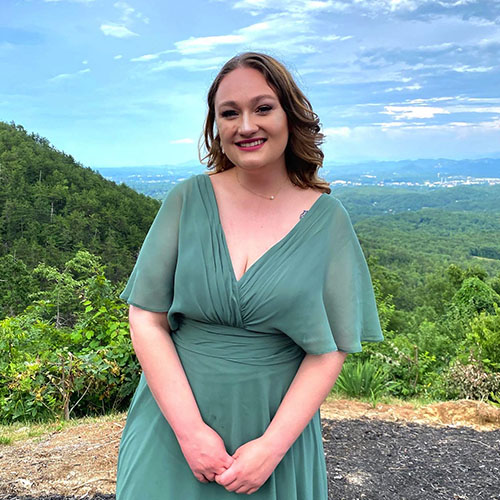
Elizabeth Bojkov
ebojkov@uw.edu
Social Risk-Informed Care Champions and Social Health Integration
PRACTICUM SITE: Kaiser Permanente Research Institute
SITE SUPERVISOR: Meagan Brown
DEPARTMENT: Health Systems & Population Health
FACULTY ADVISER: Peggy Hannon
I am a second-year MPH candidate in the Department of Health Systems and Population Health. For my Practicum, I worked with Kaiser Permanente. Kaiser Permanente National has a new strategic priority: Social Health. A major component of addressing social health in medicine is Social Risk-Informed Care (SRIC). SRIC involves providers making adjustments to the patient’s treatment plan to accommodate specific social risks the patient is facing. KP National is interested in understanding how to improve SRIC as part of social health integration so that there is alignment between national and regional efforts in WA, OR, and CO. The practicum project will be incorporated into the evaluation of SRIC at Kaiser Permanente primary care clinics in WA, OR or CO state. This aligns with the needs of the agency to evaluate and iterate on an initiative to improve the integration of social risk-informed care into primary practice with the goal of improving health outcomes for KP members. Student activities included participating in biweekly meetings for evaluation planning, identifying and contacting physicians who are champions of SRIC in their regions, developing and iterating on semi-structured interview guides to improve the effectiveness of KP’s social health intervention by investigating facilitators for physicians to translate their training in SRIC into changed behavior and implementation of social health, participating in semi-structured interviews of physicians in the data collection process, contributing to transcript coding and analyses of themes, and generating and delivering a preliminary report on behalf of the Kaiser Permanente Washington Health Research Institute (KPWHRI) and Social Needs Network for Evaluation and Translation (SONNET).
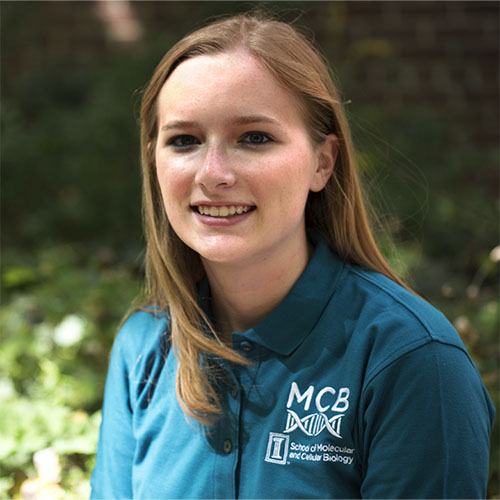
Mary Casagrande
casagra2@uw.edu
Social Determinants of Health Case Studies: Thurston Thrives and the Health Living Collaborative
PRACTICUM SITE: Uncommon Solutions
SITE SUPERVISOR: Victor Colman
DEPARTMENT: Epidemiology
FACULTY ADVISER: Arianna Means
I am a second-year MPH student studying Epidemiology with research interests in the genetic and environmental causes of cancer. For my practicum, I interviewed participants from two public health initiatives in Washington that were centered around a Social Determinants of Health Framework. These initiatives were Thurston Thrives in Thurston County, Washington and the Healthy Living Collaborative in Cowlitz, Clark, Skamania, and Wahkiakum counties in southwestern Washington. After interviewing participants, I developed case studies on the initiatives. These case studies are a part of a toolkit produced by the Washington Department of Health for communities wishing to start a public health initiative centered around a Social Determinants of Health framework. I am grateful for the opportunity to learn more about county-level public health initiatives and perform qualitative research.
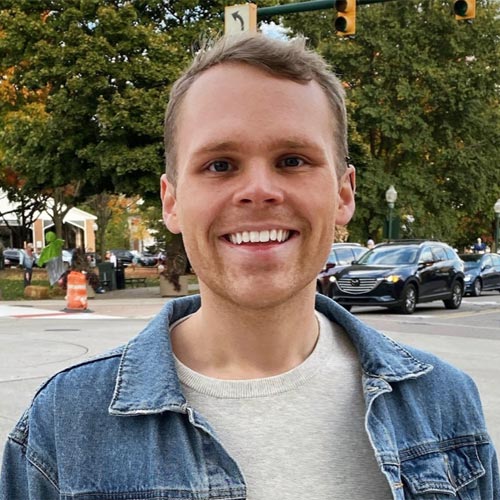
Ian Cogswell
icogswel@uw.edu
Investigating the Impact of the COVID-19 Pandemic on Healthcare Utilization Among WA Caregivers
PRACTICUM SITE: Service Employees International Union Benefits Group
SITE SUPERVISOR: Kate Causey
DEPARTMENT: Global Health
FACULTY ADVISER: Joseph Dieleman
I am a second year MPH candidate in Global Health, Health Metrics and Evaluation. I have been working at the Institute for Health Metrics and Evaluation (IHME) since 2019 modeling spending in LMICs on various health conditions and aspects of preventive care. For my practicum, I worked with SEIU 775 Benefits Group to explore WA caregiver medical claims and the impact of the COVID-19 pandemic on healthcare utilization. My role involved leveraging medical claims and collaborating other researchers to clean and process data, write research questions, and develop and implement a robust analytical approach to assess and interpret the impact of the pandemic. We hope to publish our results to inform and to provide evidence for interventions to counter the impacts of the pandemic on this community.
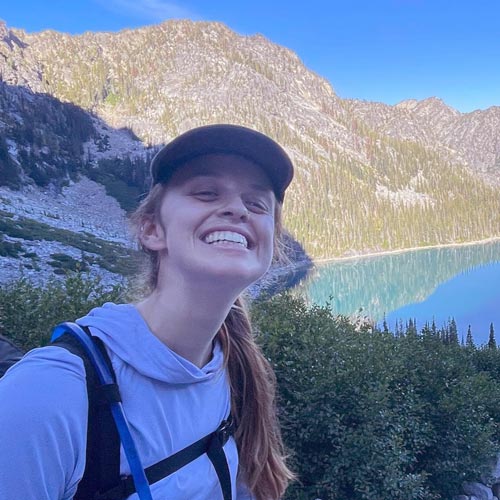
Bronte Dalton
bedalton@uw.edu
Comparing Morality and Life Expectancy Changes During COVID Between Prison and General Populations
PRACTICUM SITE: UCLA Law COVID Behind Bars Data Project
SITE SUPERVISOR: Michael Everett
DEPARTMENT: Global Health
FACULTY ADVISER: Emmanuela Gakidou
I am a second-year MPH student in the Department of Global Health on the Health Metrics and Evaluation track. I am also a Post-Bachelor Fellow at IHME on the Future Health Scenarios team. For my practicum, I got to spend three weeks working with the COVID Behind Bars project under UCLA Law. I got to explore different types of datasets from state and federal sources and think critically about how we can use limited or flawed data to produce meaningful information. I created internal tools for members of the team so they could quickly find key statistics and comparisons between general and prison populations as new data becomes available to them. The impact-focused nature of this organization taught me about the value of strong tool development to produce results as quickly as possible.

Cao Fang
fangcao@uw.edu
Perspectives of PrEP Uptake and Persistence Among MSM in Guangdong, China
PRACTICUM SITE: SESH Global LLC
SITE SUPERVISOR: Weiming Tang
DEPARTMENT: Epidemiology
FACULTY ADVISER: Arjee Restar
I am a second-year MPH candidate in the Department of Epidemiology. My practicum project is a qualitative assessment that will help SESH understand factors that might affect PrEP experience, persistence and other related behaviors among trial participants to inform future PrEP delivery programs among MSM in China. PrEP was recently approved by FDA in China in 2020 but not yet widely promoted or systemically delivered to key population groups. SESH is an organization that focuses on innovative intervention methods such as crowdsourcing of ideas among local community based organizations (CBOs) or community members to promote HIV prevention such as voluntary counseling and testing (VCT) and PrEP use. This project will consist of 30‐40 in‐depth interviews with daily‐use & on‐demand PrEP users. The results of this project will be reported back to those who are responsible for drafting intervention materials and designing mHealth interventions in order to facilitate PrEP uptake & persistence in this population.
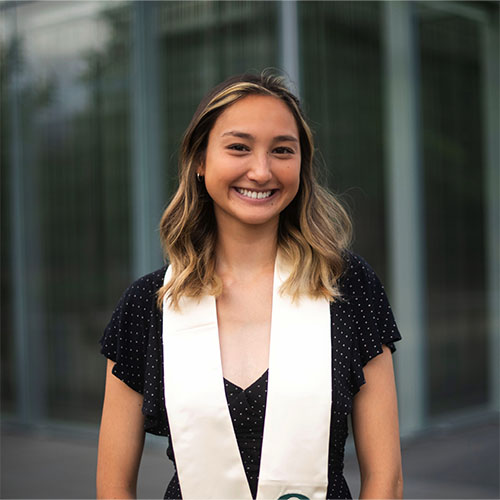
Bridget Garland
bsuweng@uw.edu
Stakeholder Engagement Strategy for Kaiser Permanente's Contact Center Systems & Applications
PRACTICUM SITE: Kaiser Permanente Strategic Implementation & Client Engagement
SITE SUPERVISOR: Jennifer Sommercamp
DEPARTMENT: Health Systems & Population Health
FACULTY ADVISER: Molly Firth
I worked within the Contact Center Systems & Applications (CCSA) department at Kaiser Permanente's Program Offices. The CCSA department worked primarily on managing the technology and software necessary to improve KP members' experience when connecting with KP contact center call agents. I worked specifically on the Strategic Implementation and Client Engagement (SICE) team within the CCSA. The stakeholder engagement strategy I worked on addressed the need to understand better who key stakeholders are and how best to communicate uniquely with each other. With a clearer picture of stakeholders, some downstream pain points this would help address include breaking down work silos, more frequent and intentional communication outlets, and increased strategic alignment among key stakeholders. I helped synthesize data to develop a stakeholder engagement strategy, a stakeholder power matrix, and a departmental newsletter proposal.
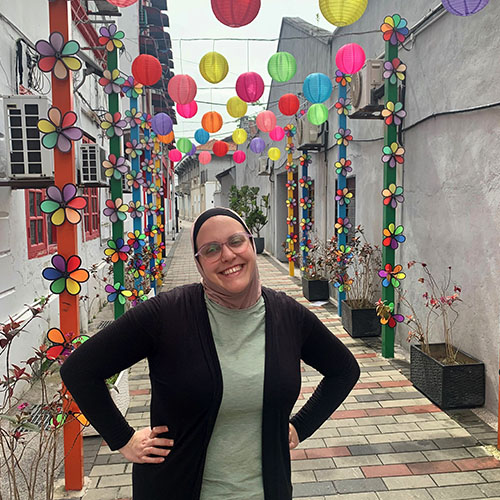
Delaney Glass
dglass1@uw.edu
Sowt al-shabab al-Arabia: Empowering the Physical and MentalHealth of Arab and Arab American Youth in Western WA
PRACTICUM SITE: Iraqi Arab Health Board
SITE SUPERVISOR: Zainab al-Tameemi
DEPARTMENT: Epidemiology
FACULTY ADVISER: Stephanie Farquhar
I am a second-year MPH candidate in the Department of Epidemiology. For my Practicum, I am doing a project to explore the physical and mental health needs of Arab and Arab American youth ages 18-25 in Seattle Metro. This research project includes 1) an online questionnaire and 2) PhotoVoice sessions (3 meetings). PhotoVoice is a qualitative method for community-engaged empowerment and policy making. Participants gather in-person and respond to prompts using photos they take themselves and work together with fellow participants to define a narrative for their photo responses. Participants have an opportunity at the last meeting to share their photos and recommendations with the Iraqi Arab Health Board of Seattle (IAHB). Both the PhotoVoice and questionnaire, along with additional work I am doing for a needs and capacity assessment, will help the IAHB make a youth focused program and also help illuminate aspects of Arab American health among academic and public audiences through scholarly publication.
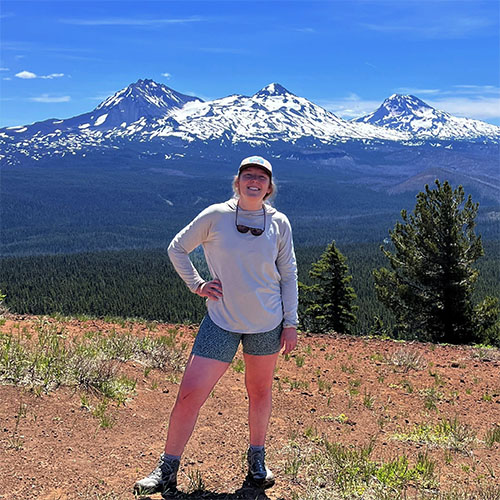
Claire Henson
claireah@uw.edu
Mixed Methods Survey Development for Evaluation of Income Generation Initiatives in Yemen
PRACTICUM SITE: Yemen Relief and Reconstruction
SITE SUPERVISOR: Aisha Jumaan
DEPARTMENT: Global Health
FACULTY ADVISER: Emmanuela Gakidou
For my practicum project I worked with the Yemen Relief and Reconstruction Foundation (YRRF). YRRF recently began a variety of product and vocational training-based income generation projects to improve food security and self-reliance in remote and conflict-ridden regions of Yemen. I created comprehensive mixed-methods interview guides to evaluate both the impacts of these different programs on the life and livelihoods of those utilizing the services, and the functioning of the programs themselves. This information is of key importance to YRRF as they continue to expand and improve different programs. The guides were created after conducting a literature review and included multiple semi-structured questionnaires, interviewer training materials, sampling guides, analysis templates and other materials that were tailored to each program’s circumstances. My aim was to set the groundwork for comprehensive and flexible evaluation of these programs as they continue to develop and impact communities. It was a wonderful experience to apply lessons in evaluation and mixed methods research from within the MPH program to this work.
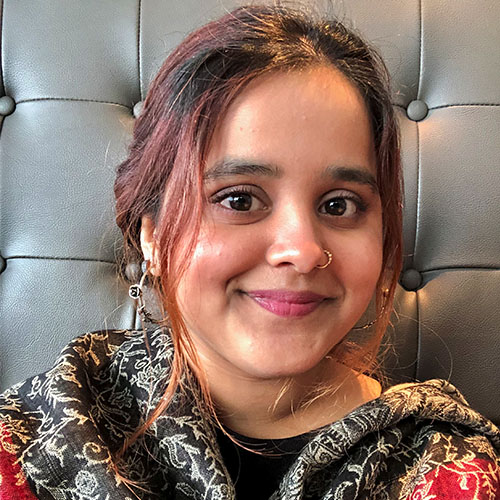
Marium Kapasi
mjkapasi@uw.edu
Implementing an Inclusive Health Needs Assessment for Individuals with Intellectual Disabilities
PRACTICUM SITE: Special Olympics
SITE SUPERVISOR: Alicia Dixon-Ibarra
DEPARTMENT: Epidemiology
FACULTY ADVISER: Stephanie Farquhar
I am a second year MPH student in the Department of Epidemiology, along the Global Health track. With an interest in implementation science and health equity, I worked with Special Olympics Inc. (SOI) to support the implementation of a mixed methods health needs assessment to identify gaps and barriers in accessing and using health services for people with intellectual disabilities (ID). My role was to assist in the evaluation and analysis of virtual focus groups conducted across the United States, develop, and disseminate a health needs assessment survey, and describe the findings in a final report for SOI. This project aligns with my professional goals as it has allowed me to pursue opportunities that seek to understand health challenges faced by diverse and underserved populations and to enhance my qualitative and quantitative skills.
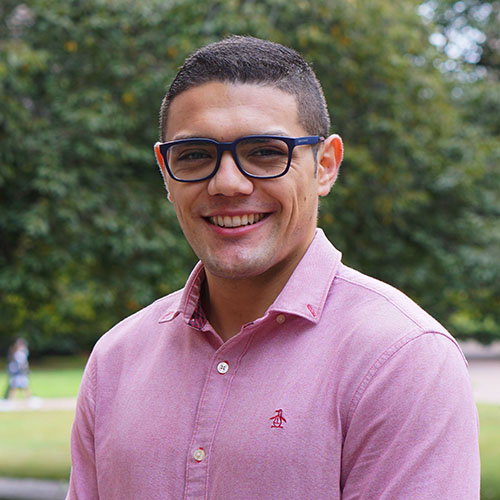
Jonathan Lara
jlara4@uw.edu
Qualitative Analysis and Development of Communication Materials for the Mama Aweza Trial in Kenya
PRACTICUM SITE: University of Washington Global Center for Integrated Health of Women, Adolescents, and Children
SITE SUPERVISOR: Christine McGrath
DEPARTMENT: Nutritional Sciences
FACULTY ADVISER: Cristen Harris
I am a second-year MPH in Public Health Nutrition student with an interest in evaluating and developing effective nutritional policies and interventions in low- and middle-income countries. For my practicum, I worked at UW’s Global WACh to carry out the qualitative analysis of the Mama Aweza Trial. This randomized controlled trial evaluated the acceptability, fidelity, and feasibility of implementing a maternally administered malnutrition monitoring system in Kenya. I assisted in the process of developing the codebook, applying it to the different interview transcripts, and analyzing the data. Moreover, I developed communication materials about the project results and nutritional recommendations to be shared with different stakeholders, including Kenya's Ministry of Health and project participants. This experience was an amazing opportunity for me to work with a multidisciplinary team, strengthen my qualitative skills, and learn how to communicate culturally appropriate public health content for different audiences and sectors.
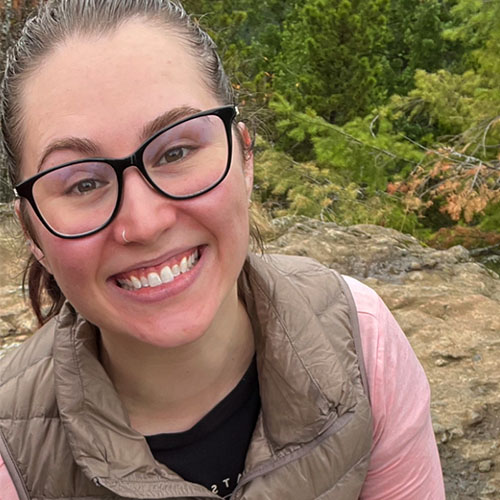
Kendall Lawley
lawleyk@uw.edu
Identifying Gaps in Social Determinants of Health Data to Address Maternal Vulnerability Factors in Washington State
PRACTICUM SITE: Foundation for Health Care Quality - Obstetrical Care Outcome Assessment Program
SITE SUPERVISOR: Vivienne Souter
DEPARTMENT: Epidemiology
FACULTY ADVISER: Daniel Enquobahrie
I am a second-year MPH student in Epidemiology and my research interests include perinatal epidemiology, social determinants of health (SDOH), and healthcare access. For my practicum, I partnered with OB COAP to conduct a review of the current literature on the validity of methodologies for evaluating SDOH in health care settings with a focus on obstetric care facilities. I then created a technical report using OB COAP data to analyze the SDOH data that have been collected by their organization since January 2022 to identify patterns in missingness in responses to SDOH questions. This work will be used to inform future data collection strategies for hospitals and obstetric facilities that aim to collect SDOH data. I am grateful for this practicum experience which has given me the opportunity to see how you can combine epidemiology research and methodology with public health practice to improve quality of care in healthcare facilities.
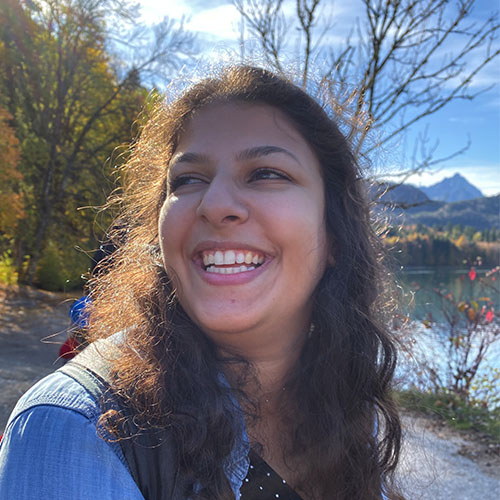
Anisha Loeb
aloeb@uw.edu
Theory-Driven Assessment of Implementation Strategies and Context to Inform the WHO Cervical Cancer Screening and Treatment Guideline Implementation Recommendations (WHO-CECA-IR)
PRACTICUM SITE: I-TECH
SITE SUPERVISOR: Linda Eckert
DEPARTMENT: Epidemiology
FACULTY ADVISER: Jennifer Balkus
For my practicum, I was given the opportunity to work on the WHO's cervical cancer screening guidelines implementation team. In 2020, the WHO created guidelines recommending the transition from screening methods of visual inspection with acetic acid (VIA) and traditional cytology to HPV DNA testing, which is more accurate, but also more expensive. The overall goal of this project was to learn from on-the-ground experts about their experience in carrying out screening programs, aspects that were and were not working, and what they need from the global community for successful implementation. This project enabled me to help carry out interviews, develop a qualitative codebook, and analyze the data obtained to inform low- and middle-income (LMICs) countries about strategies that have proven successful in some contexts, and communicate further needs to governing bodies. Professionally, I am interested in women's health in LMICs, and hope to continue studies on sexually transmitted infections.
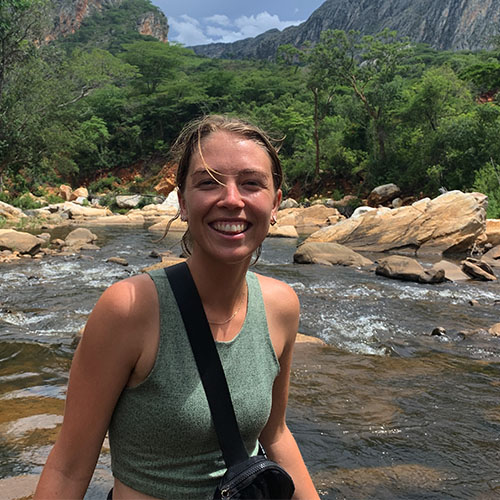
Sarah Luth
sluth@uw.edu
Equipa de Pesquisa: Technical Support for Public Health Research Projects in Maputo Province, Mozambique
PRACTICUM SITE: Comité para a Saude de Moçambique
SITE SUPERVISOR: Isaias Ramiro
DEPARTMENT: Global Health
FACULTY ADVISER: Stephen Gloyd
I am a second-year MPH student in the Global Health Track. My research interests include social and environmental determinants of health, maternal and child health, and primary healthcare resilience. For my practicum project, I interned at Comité para a Saúde de Moçambique (CSM) in Mozambique, to support capacity-building of local hospital nurses and technicians to conduct public health research in Maputo Province. This included participating in a training session with the research teams, creating examples and templates for how to develop research protocols, how to submit proposals to the Ethics Committee in Mozambique, and assistance in revising protocols. These tools and support enabled 7 new researchers to each design and submit a research proposal of their own to the Ethics Committee in Mozambique. Hopefully the outcome of the practicum experience will empower and encourage future research which is driven by Mozambican healthcare workers. My practicum experience taught me about the process for conducting public health research in Mozambique, increased my understanding of the Mozambican healthcare system, built professional connections, and improved my ability to conduct trainings and participate in professional meetings, as well as my Portuguese language skills. Each of these points will assist me throughout my career in public health practice and in research. Outside of school and work, I enjoy listening to live music, dancing, spending time with friends, eating, and playing ultimate frisbee.
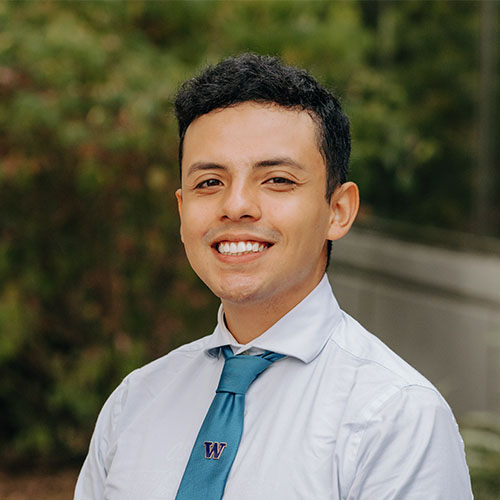
Miguel Martinez
miguel98@uw.edu
Evaluation of Washington State’s Department of Health’s Respiratory Protection Programs.
PRACTICUM SITE: Washington State Department of Health - Office of Communicable Disease Epidemiology
SITE SUPERVISOR: Catherine Connon
DEPARTMENT: Health Systems & Population Health
FACULTY ADVISER: Linda Ko
I am a second year MPH student in the Health Systems and Population Health Concentration. My public health interests include applied epidemiology, increasing health services access for individuals living with HIV, and using big data to answer questions. For my practicum, I worked with the Washington State Department of Health’s division of Healthcare-Associated Infections (HAI) to conduct two program evaluations for two respiratory protection programs. Through my practicum experience I was able to gain valuable experience related to participant data privacy, digital data collection, and data dissemination. During my time with the Department of Health, I was able to develop two reports detailing the results from the evaluations and provided recommendations to increase program accessibility and quality.
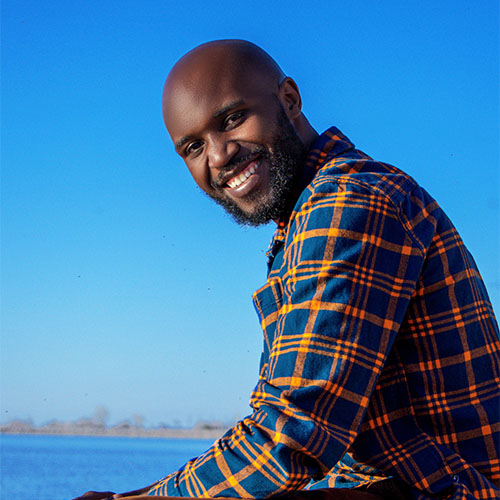
Felix Mogaka
fmogaka1@uw.edu
Envisioning a New Model For Equity in Global Health Partnerships
PRACTICUM SITE: University of Washington Department of Global Health
SITE SUPERVISOR: Caitlin Scoville
DEPARTMENT: Global Health
FACULTY ADVISER: Elizabeth Bukusi
I am a second-year MPH candidate in the Department of Global Health. For my practicum project at the UW International Clinical Research Center (ICRC), I held discussions with Global health research partners from Eastern and Southern Africa to identify their key challenges and priority recommendations for implementing equitable global health research partnerships. The ICRC is committed to equitable partnerships and has developed a toolkit for decolonizing Global Health. My practicum work will provide the leadership with feedback from the point of view of partner institutions in the Global South and actionable recommendations for implementing the toolkit.
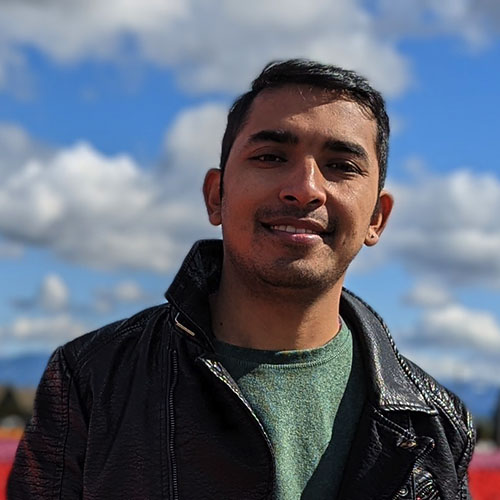
Biraj Neupane
birajnp@uw.edu
Continuum of Care Protocol for Rural NCD Care: Cardiovascular Disease and Diabetes Mellitus
PRACTICUM SITE: Dhulikhel Hospital Department of Public Health and Community Programs
SITE SUPERVISOR: Dr. Dipesh Tamrakar
DEPARTMENT: Global Health
FACULTY ADVISER: Annette Fitzpatrick
I am an MPH-Global Health second year candidate in the Department of Global Health and My research interests include health informatics, health services, environmental health, and Non-Communicable Diseases (NCDs). For my practicum, I worked in the Dhulikhel Hospital- Kathmandu University Hospital (DH-KUH), to create a continuum of care protocol for NCD care. Healthcare services are generally designed for acute conditions, but less so for noncommunicable diseases, which are on the rise. DH-KUH envisions Rural Community-Based Integrated NCD Intervention to bridge the gap and connect household level noncommunicable disease cases to health facilities. Although this program has been initiated, no protocol describing its implementation has yet been developed. I will be designing the protocol for the nurses to implement the Continuum of Care protocol, which will connect identified cardiovascular disease and diabetes mellitus patients to a nearby health facility.
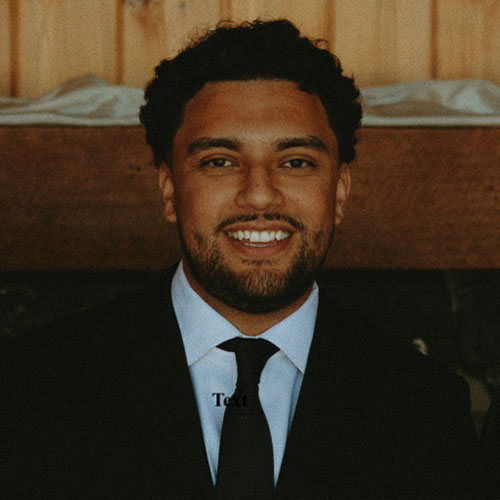
Sam Plascencia
samp96@uw.edu
Pike Market Food Bank: Designing and Implementing a Client Satisfaction Monitoring System
PRACTICUM SITE: Pike Place Food Bank
SITE SUPERVISOR: Angie Wood
DEPARTMENT: Health Systems & Population Health
FACULTY ADVISER: Peter House
I am a second year MPH candidate in Health Systems and Population Health. I’m interested in community health programs related to food accessibility. This interest led me to connect with Pike Market Food Bank for my practicum. Pike Market Food Bank provides free groceries to the community of Downtown Seattle to address food insecurity issues. At the beginning of the COVID pandemic, the food bank shifted their operations due to client safety. Since the pandemic, the food bank had not checked in with their clients about their preferences and opinions on their operations. In order to connect with their clients, Pike Market Food Bank wanted to create a pilot client satisfaction system to receive feedback from its customers and make changes to their services. In collaboration with our team, we created a pilot survey that was implemented over a 3-day period to collect feedback from clients. The results from the survey helped inform Pike Market Food Bank on best practices to collect client feedback and improve their services.
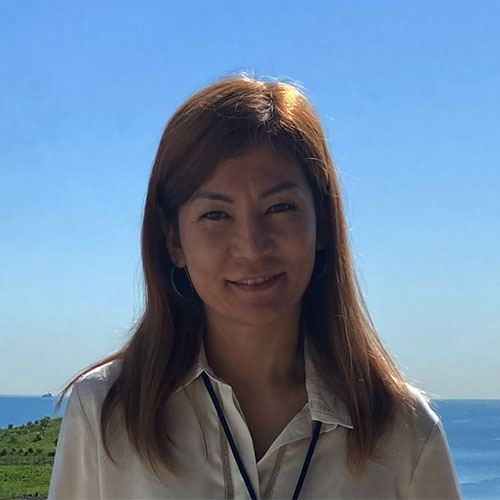
Assem Suleimenova
assems@uw.edu
Quality of Health Information Systems
PRACTICUM SITE: I-TECH
SITE SUPERVISOR: Jan Flowers
DEPARTMENT: Global Health
FACULTY ADVISER: Nancy Puttkammer
As part of my practicum at I-TECH, I worked with the DIGI team to explore how EMR quality relates to patient outcomes. The following deliverables were reported during my practicum with DIGI: Quality in Health Information Systems Mind Map, Causal relationship between the quality of an EMR and patient outcomes, Spreadsheet containing all the publications that were considered for inclusion in the scoping review, journal targets, frameworks and models we hoped to use, the final list of publications with all the main criteria defined, the scoping review protocol, and a literature review. A scoping review was the primary objective, which included all related activities within the PCC framework (population, concepts, context). As well as learning how to work remotely, I have gained invaluable experience working with people from diverse backgrounds and expertise with the DIGI team. Additionally, I gained experience in both independent and collaborative work.

Abdul-Matinue Sulemana
abduls1@uw.edu
Perceptions of Two-Way-Testing (2wT) for Male Circumcision in a Routine Care Context to Improve Quality Improvements.
PRACTICUM SITE: I-TECH
SITE SUPERVISOR: Marrianne Holec
DEPARTMENT: Global Health
FACULTY ADVISER: Caryl Feldacker
I am a second-year MPH student in the Department of Global Health. I completed my MPH Practicum at my DGH Center, the International Training and Education Center for Health, an implementation-oriented Center in the UW DGH. For my Practicum, I reviewed qualitative quality improvement data from a digital health innovation aimed at supporting post-operative healing among men. My deliverable produced suggestions for program strengthening to better engage men from rural communities and to better improve the efficiency of the intervention from the nurse perspective. Before joining the DGH, I had worked with the government Ministry of Health and other agencies to promote public health in marginalized and neglected areas. My role as a Public Health Nursing officer in Ghana offered me the opportunity to work with diverse service providers (government hospitals, healthcare facilities, NGOs) to provide basic health services to bridge the disparities and inequalities in healthcare access.

Beza Tadess
bezat2@uw.edu
State Field Experience: Applied Epidemiology HAI/AR.
PRACTICUM SITE: Washington State Department of Health - Healthcare-Associated Infections/Antimicrobial Resistance
SITE SUPERVISOR: Nailah Smith
DEPARTMENT: Epidemiology
FACULTY ADVISER: Daniel Enquobahrie
I am a second-year MPH student in the Department of Epidemiology in the Maternal and Child Health track. My research interests include nutrition, endometriosis, adenomyosis, fibroids, and common reproductive cancers. For my practicum project, I interned at the Washington State Department of Health to complete some of its routine operations such as assisting with completion of grant metrics, improving surveillance data quality, and contributing to public health knowledge. In addition, I worked on data analysis project using surveillance data collected for COVID-19 outbreaks in long term care settings. I am grateful to have had the opportunity to learn from epidemiologists that are in the forefront of the various challenges brough on by infectious disease outbreaks.

Tripura Talagadadeevi
talags@uw.edu
Data Visualization for the Amazonic Health Observatory
PRACTICUM SITE: Sinergias
SITE SUPERVISOR: Maria Camila Rodriguez
DEPARTMENT: Epidemiology
FACULTY ADVISER: Mienah Z. Sharif
I am a second-year MPH candidate in Epidemiology in the Epi-GH program. I am passionate about using data to uncover health trends and inequities in order to inform meaningful decisions and policies. My current topics of interest are health consequences of climate change, refugee health, and health systems strengthening. I have always been drawn to working with vulnerable communities and changing the impact of many socio-economic, cultural, and political factors that affect them. Thus, for my practicum, I joined an NGO in Colombia, Sinergias, to assist in improving the health condition of native communities living in the Amazon region of Colombia. My main task was to streamline the data visualization for the Amazonic Health Observatory Project. I contributed by identifying primary indicators of interest, creating various data visualizations of those indicators, mapping the indicators across the Amazon region, and drafting infographics for community dissemination. Throughout the project, I worked closely with a team of individuals with diverse backgrounds who each had a unique contribution to the group, and attended meetings regularly to engage in stakeholder sessions. I had the wonderful opportunity to not only visit Colombia and work with the communities in the Amazon rainforest, but also to attend the Make Health Conference in Medellín, Colombia with my team. My hope is that these visualizations will provide the internal team with resources that will guide them in developing evidence-based programs and making policy decisions.
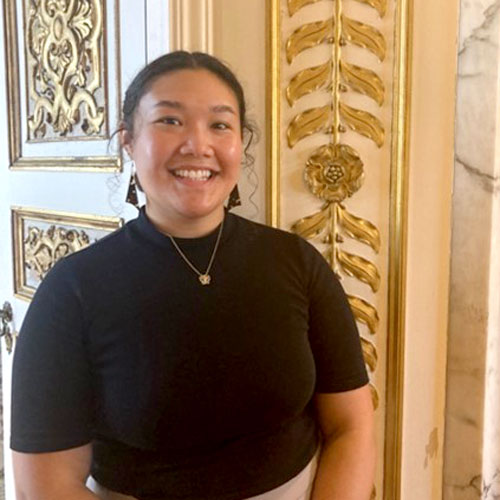
Rachael Tamngin
rlt9@uw.edu
WELL US Study
PRACTICUM SITE: Tubman Center for Health & Freedom
SITE SUPERVISOR: AyeNay Abye
DEPARTMENT: Global Health
FACULTY ADVISER: James Pfeiffer
I am a third-year graduate student concurrently enrolled in a joint Ph.D. in Anthropology and MPH in Global Health program at the University of Washington. I am specializing in Medical Anthropology to continue bridging culture and public health in my work and research. For nearly a decade, I have worked with Pacific Islander community organizations that focus on the health and well-being of Pacific Islanders in the greater Seattle area and in the region of Micronesia in the Pacific. My research focuses on the intersections of traditional medicine and western biomedical institutions in Yap, Federated States of Micronesia through building and centering Indigenous Oceanic research approaches in my work.

Candice Wilshire
cwilsh@uw.edu
Development, Implementation, and Maintenance of a Mobile Lung Cancer Screening Program for Underserved Individuals.
PRACTICUM SITE: Swedish Medical Center and Health Services
SITE SUPERVISOR: Jed Gorden
DEPARTMENT: Epidemiology
FACULTY ADVISER: Mandy Fretts
I am a second-year MPH student in the Department of Epidemiology interested in improving access to lung cancer screening in underserved areas with communities at a high-risk of lung cancer. I partnered with Dr. Jed Gorden at the Swedish Cancer Institute to assess the status of lung cancer screening and mobile lung cancer screening in Washington State, and to design a mobile lung cancer screening program for the institution. I was responsible for completing a thorough background and literature review; performing a Washington State Community Needs Assessment; designing a mobile lung cancer screening program; and synthesizing the information into a proposal for Swedish Cancer Institute leadership. I enjoyed the opportunity to work with the team and on a project that will ultimately reduce transportation, financial, and resource barriers to accessing care; and improve the quality of life and survival in individuals with lung cancer.
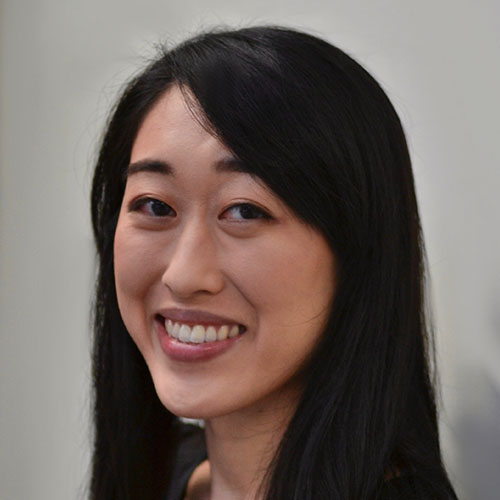
Winnie Yeung
wscyeung@uw.edu
Pharmacy Integration into PrEP and ART Provision and Retention (PIPAR) Program Cost Analysis
PRACTICUM SITE: Public Health Seattle & King County - Communicable Disease & Immunization
SITE SUPERVISOR: Teah Hoopes
DEPARTMENT: Epidemiology
FACULTY ADVISER: Julia Dombrowski
I am a second-year MPH student in Epidemiology with an interest in infectious diseases and applied public health practice. For my practicum, I worked with the Pharmacy Integration into PrEP and ART Provision and Retention (PIPAR) team at Public Health – Seattle & King County’s HIV/STD Program to analyze the costs associated with the management of its pharmacy-based ART retention activities and start-up of its PrEP pharmacy initiation activities. The PIPAR demonstration project aimed to integrate pharmacies throughout Washington state into a coordinated public health program to expand pre-exposure prophylaxis (PrEP) access and promote greater retention in HIV treatment and PrEP use. During my practicum, I also drafted a summary report of the roles of collaborators, platforms, and policies that were facilitators/barriers to the pharmacy-based programs.

Hanna Bailey
hebailey@uw.edu
Educational Resources for Families & Clinicians About Per- and Polyfluoroalkyl Substances (PFAS) Regarding Potential Exposures and Health Impacts for Children Living in PEHSU Region 10 States
PRACTICUM SITE: University of Washington Pediatric Environmental Health Specialty Unit
SITE SUPERVISOR: Mary Kate Cardon
DEPARTMENT: Environmental and Occupational Health
FACULTY ADVISER: Catherine Karr
I am a second year MPH student studying Environmental and Occupational Health with special interest in the relationship between the environment and children's health. The Northwest Pediatric Environmental Health Speciality Unit (PEHSU), a non-profit funded by the EPA and ATSDR, is part of a large network of 10 regional PEHSU's across the country determined to address and support children's environmental health. The Northwest PEHSU was selected to become Subject Matter Experts on the topic of PFAS, so my practicum involved collecting PFAS information for each state in Region 10 (WA, OR, ID, AK). I compiled the information into two documents: one tailored to families and one tailored to clinicians. Those resources are now available on the Northwest PEHSU website for families concerned about their child’s exposure or clinicians seeking to learn more about PFAS and their pediatric patients. It was literally a dream come true for me to work with the Northwest PEHSU team, and I enjoyed every minute of my practicum!
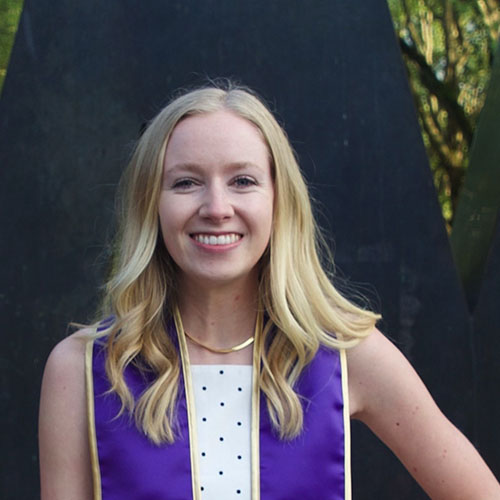
Nicole Briggs
nbriggs@uw.edu
The Development of WA Verify’s Vaccine Verification Dashboard
PRACTICUM SITE: Washington State Department of Health Informatics Office
SITE SUPERVISOR: Bryant Karras
DEPARTMENT: Epidemiology
FACULTY ADVISER: Janet Baseman
I am a second-year MPH-Epidemiology student with interests in public health informatics and applied epidemiology. For my practicum project, I worked with the Informatics Program in the Office of Innovation and Technology of the Washington State Department of Health (WA DOH) to create a Tableau dashboard and a workplan for evaluating WA Verify, a Covid-19 vaccine verification tool for Washington State. My project focused on assessing current available data that could be used as metrics on a dashboard to evaluate how WA Verify had been used since its launch in October 2021. I particularly enjoyed using applied epidemiology skills to explain trends in WA Verify usage and assessing the public health value of language accessibility (WA Verify is available in 50+ languages)! This project was a fantastic opportunity to work with informatics, data science, and public health professionals and I am grateful for the intentional mentorship I received.

Emilia Cardenas
emiliacr@uw.edu
Mixed Methods Analysis of Biomedical Providers’ and Patients’ Perspectives on Intercultural Medicine at Hospital San Antonio de Mitú, Vaupés (Colombia)
PRACTICUM SITE: Sinergias
SITE SUPERVISOR: Pablo Montoya
DEPARTMENT: Global Health
FACULTY ADVISER: James Pfeiffer
The practicum was inscribed in a broader collaboration between the NGO Sinergias and the Hospital San Antonio de Mitú, located in Vaupés (Colombia). This collaboration focuses on adjusting the hospital's work so as to provide more intercultural healthcare that will better address the indigenous population’s needs and perspectives. During my practicum I helped conduct surveys to the hospital's workers and patients regarding their experiences, expectations, fears, beliefs, and thoughts on intercultural medicine. I also conducted mixed methods analysis with the data and developed visual material that displayed and explained the data. This was then used by the Sinergias team, who presented it to the hospital as a baseline assessment and will use it to help inform public health actors that work in the area. The material was also handed to the hospital team, who will be able to use it to adjust their own services and as educational material to train their staff.
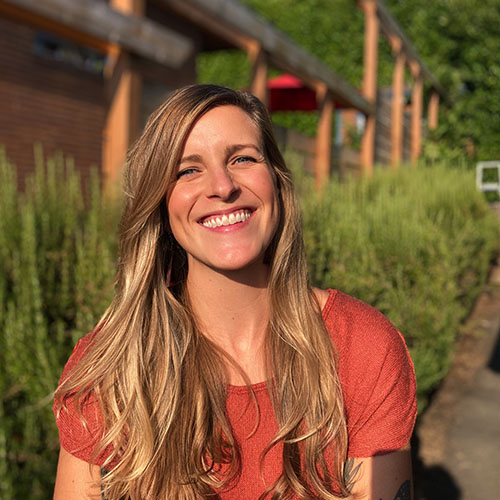
Nico Flint
cnflint@uw.edu
Creation and Cultural Translation of Web-Based Communication Materials to Disseminate Public Health Work and Research Done by the NGO Sinergias in Colombia
PRACTICUM SITE: Sinergias
SITE SUPERVISOR: Pablo Montoya
DEPARTMENT: Global Health
FACULTY ADVISER: James Pfeiffer
I am a second-year MPH candidate in the Department of Global Health. With a background in cultural anthropology and an interest in global health communication, I assisted in the creation and development of web-based communication materials in order to more widely disseminate the public health work and research done by the NGO Sinergias in Colombia. In the summer of 2022, I spent two months living and working with the Sinergias team in Bogota. My trip also included a weeklong field visit to the Colombian Amazon where I was able to observe the work Sinergias does with Indigenous communities first hand. I provided a cultural translation of online materials from Spanish to English, with the goal of reaching and appealing to specific stakeholders. Additionally, through both an infographic and a piece of creative writing detailing my experience in Colombia, I worked to define and feature the health model used in Sinergias’ work, emphasizing the importance of its interdisciplinary and holistic nature.
Susan Jacob
sj7@uw.edu
Ghana Pharmacists Immunization Training Program
PRACTICUM SITE: PATH
SITE SUPERVISOR: Evan Simpson
DEPARTMENT: Epidemiology
FACULTY ADVISER: Andy Stergachis
I’m a second year MPH student in Epidemiology-Global Health track. I’m also a pharmacist at Seattle Children’s Hospital. Last summer, I had the opportunity to work with PATH’s Center for Vaccine Innovation and Access team on a project to train Ghanaian pharmacists as immunizers. Ghana faces a critical shortage in trained healthcare personnel who are certified to administer vaccines. This gap in human resources was highlighted due to the COVID-19 pandemic. In collaboration with the UW School of Pharmacy, the Ghana College of Pharmacy and local stakeholders, immunization training modules were developed and implemented to train and certify Ghanaian pharmacists as immunizers. My role in this project was to develop a program evaluation survey as well as a framework to evaluate start-up costs of this new initiative.
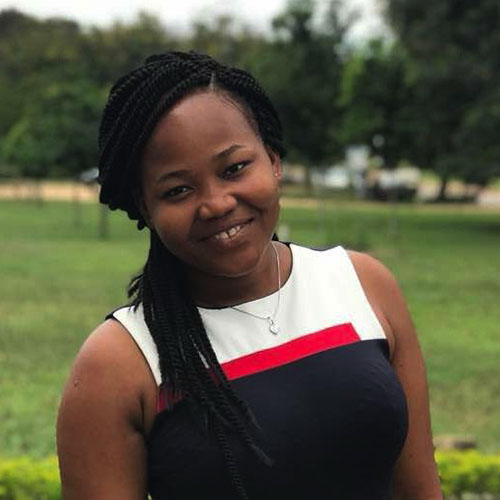
Patience Jaman
pjaman@uw.edu
2023 Diabetes Calendar
PRACTICUM SITE: Harborview Medical Center - EthnoMed
SITE SUPERVISOR: Ehsan Shayegan
DEPARTMENT: Global Health
FACULTY ADVISER: Roxanne Kerani
I am a second-year MPH student in Global Health with interests in maternal and child health, women’s health and rights, Diversity, Equity, and Inclusion. My project is part of a series of culturally tailored patient education tools targeted to individuals with diabetes or pre-diabetes. My work included updating the details and designs of the thirteen-month Diabetes calendar with MS Publisher. This calendar will be used by clinicians during discussions with patients about carbohydrates and blood glucose. It was culturally tailored to reflect foods commonly consumed by communities and included photos of foods, meal comparisons, portion sizes, and information on managing diabetes during periods of fasting. These 13-month diabetes calendars were produced in five languages with English interpretations. I explored the potential new production of the calendar for the Marshallese community. The final documents were formatted for printing as a full-size color wall calendar to be shared electronically online and in hard copy with patients and at community fairs.
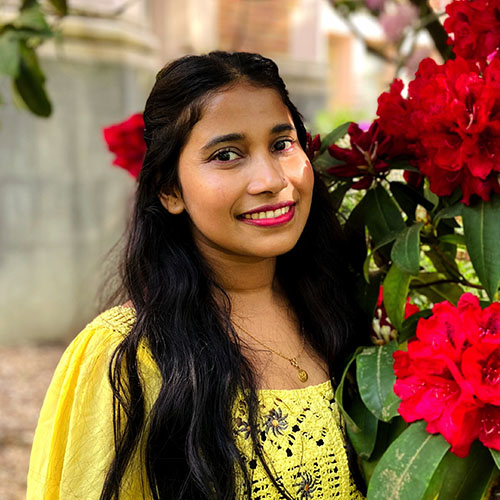
Niharika Jha
nj33@uw.edu
Cardio-Metabolic Related Women’s Health and School Health Program
PRACTICUM SITE: Dhulikhel Hospital Department of Public Health and Community Programs
SITE SUPERVISOR: Shrinkhala Shrestha
DEPARTMENT: Global Health
FACULTY ADVISER: Annette Fitzpatrick
Department of Public Health and Community Programs of Dhulikhel Hospital-Kathmandu University Hospital (DH-KUH) is running a health education and awareness program called “Women’s Health and School Health Program”. A team specifically designated for that program is responsible for organizing health education programs on different topics like diabetes, adolescents’ health, etc. in the community as well as in schools. With the DH team, we planned, coordinated, and organized cardiometabolic related health education programs with different groups including two women's groups at community outreach centers, two with secondary high school classes and one with a female community health volunteer’s group. I also assisted the DH team in communicating with the community people and assessing their awareness on the same topics before and after the session. I prepared slides in their local language and presented this topic in their own community so that they all can participate. The programs have a good impact on community as they asked to include this cardiometabolic topic in DH existing topics and to continue this topic in later days also.
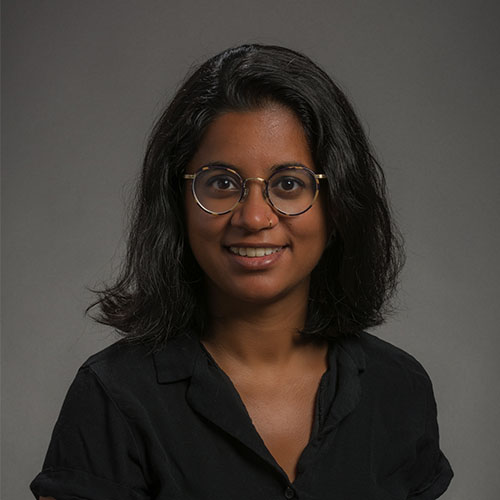
Raaka Kumbhakar
raaka@uw.edu
An EHR Clinical Toolkit for Better PrEP Prescribing at the University of Washington Primary Care Clinics: a Quality Improvement Project in the HIV PrEP Care Cascade
PRACTICUM SITE: Harborview Medical Center Madison HIV/AIDS Clinic
SITE SUPERVISOR: Jehan Budak
DEPARTMENT: Epidemiology
FACULTY ADVISER: Julia Dombrowski
I am a second year MPH candidate in Epidemiology and infectious disease physician with interests in infectious disease epidemiology, HIV and STI care, low barrier care, program evaluation, and the HIV care continuum. For my practicum, I worked with the Madison Clinic at Harborview Medical Center on a clinical decision making toolkit to help optimize HIV PrEP prescribing both at initiation and continuation of care. Suboptimal PrEP retention is driven by many factors, and we sought to focus on provider knowledge of CDC guidelines (most recently updated in 2021). Currently, across the University of Washington (UW) medical system, there is no standardized guidance to aid primary care prescribers in either initial evaluation or follow up visits for those persons evaluated for and initiated on PrEP. In order to make guideline driven PrEP prescribing and knowledge more accessible for practitioners, we built a provider toolkit to provide a standardized framework for PrEP care and designed a pilot program of these tools at a single clinic site, with the goal to ultimately use these data and pilot to perform an evaluation pre and post implementation of this toolkit for quality improvement (QI) purposes. Post pilot, the goal will be to roll out this framework across the UW Medicine system. To achieve these aims, we involved stakeholders via a multidisciplinary team of clinical medical providers, patients, and directors from primary care settings, clinical pharmacists, and medical consultants working with Epic, the electronic medical record (EMR) utilized across UW clinical sites."
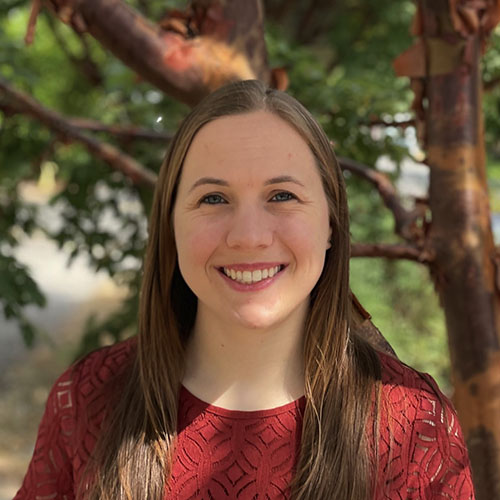
Megan Lewis
mlewis5@uw.edu
Through Knowledge Comes Power: Improving Access to Comprehensive Sexuality Education
PRACTICUM SITE: Maniilaq Public Health Nursing
SITE SUPERVISOR: Josephine Oke
DEPARTMENT: Global Health
FACULTY ADVISER: Pamela Kohler
I am a second-year Master of Public Health in Global Health and Graduate Certificate in International Humanitarian Response student. For my practicum, I had the privilege of working with and learning from Maniilaq Public Health Nursing in Kotzebue, Northwest Alaska. Maniilaq Public Health Nursing’s community-based public health services were impacted by the COVID-19 pandemic with sexual health programming identified as an acute and growing need. I was asked to conduct a landscape analysis and develop a sexual health improvement plan aimed to bring high-quality, evidence-based, trauma-informed comprehensive sexual health and wellness lessons to students in Alaska’s Northwest Arctic Borough and Native Village of Point Hope. In addition to further solidifying my interest in rural and remote health, domestically and internationally, this experience has piqued my interest in field-based public health practice.
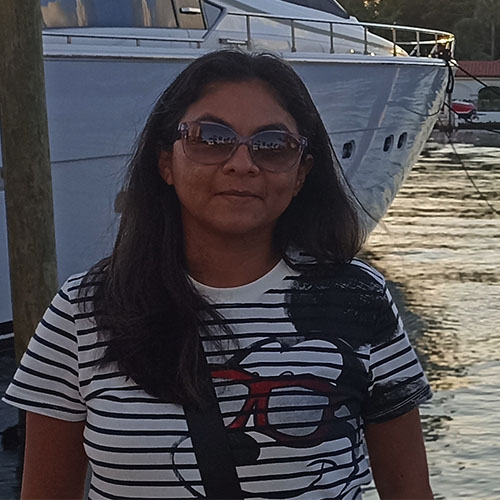
Ecos Quispe Rosa Lizbeth
rleq2@uw.ed
Access to Education and Training Assistance for Caregivers of Severely Disabled Stroke Patients.
PRACTICUM SITE: Instituto Nacional de Ciencias Neurologicas
SITE SUPERVISOR: Carlos Abanto
DEPARTMENT: Global Health
FACULTY ADVISER: Joseph Zunt
I am a second-year MPH candidate in the Department of Global Health. I was interested in examining the quality of care our national tertiary center provides to patients and families after a stroke, such as how it is structured and whether it is sufficient to fulfill our patients’ basic needs. As a result, I proposed to evaluate the level and status of caregivers' assistance to patients with severe stroke regarding the knowledge, training, and social and family conflicts following discharge to home. During the project, I had the opportunity to apply my skills in qualitative methods during semi-structured interviews, analyzing and interpreting data, and most importantly, looking for possible strategies to improve the issues I identified. I recommended implementing programs that include integrated assistance to the survivors of stroke and their families through a multidisciplinary approach.
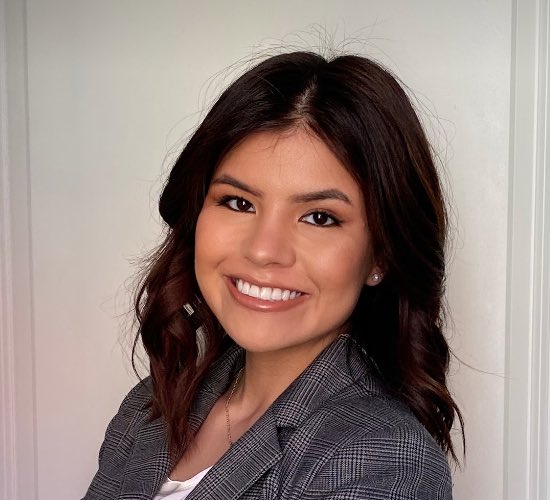
Sandra Mata-Diaz
sandramd@uw.edu
Washington Foster Care Center of Excellence Assessment
PRACTICUM SITE: Harborview Foster Care Center of Excellence
SITE SUPERVISOR: Elana Feldman
DEPARTMENT: Epidemiology
FACULTY ADVISER: Donna Denno
I am a second-year MPH student in the Department of Epidemiology. My primary interests are mental health, racial disparities, and social determinants of health. For my practicum, I worked with the Harborview Foster Care Center of Excellence Clinic. My role was to conduct a mixed methods assessment of the three current Washington State COEs. I led key informant interviews with various stakeholders and analyzed the qualitative data along with billing data from the three clinics. Using this assessment, I created a comprehensive report to be shared with the Washington State Foster Care Learning Collaborative on the progress of the Foster Care COEs and recommendations for the next steps.

Lindsey McClellan
linds11m@uw.edu
A Response Toolkit to Address Washington’s Targeted Multidrug-Resistant Organisms (MDRO) in Healthcare Settings
PRACTICUM SITE: Washington State Department of Health - Healthcare Associated Infections Programs
SITE SUPERVISOR: Kelly Kauber
DEPARTMENT: Health Systems & Population Health
FACULTY ADVISER: Stephanie Farquhar
I am a second-year MPH candidate in the Health Systems and Population Health program. My public health interests include infectious disease, antibiotic resistance, health education, and health equity. For my practicum, I worked with the Healthcare Associated-Infections and Antimicrobial Resistance (HAI & AR) group at the Washington Department of Health to develop a standardized web-based toolkit for local health jurisdictions, health providers, staff, patients, and families to utilize when addressing Multidrug-Resistant Organism (MDRO) infections in a variety of healthcare settings. I developed health education materials for patients and families, and worked interprofessionally with epidemiologists and infection preventionists to develop necessary resources for the toolkit. This project allowed me to experience public health practice in a health department setting and explore antimicrobial stewardship.
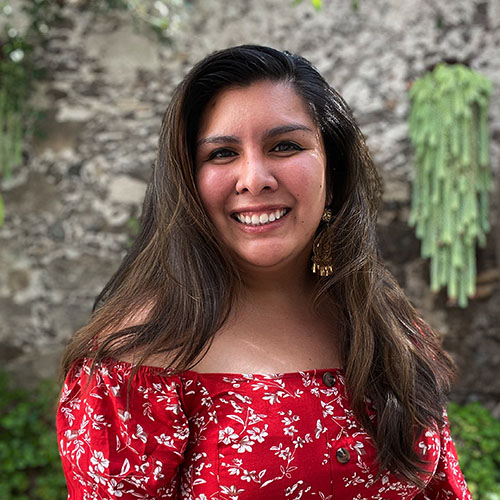
Magali Sanchez
magalisi@uw.edu
Addressing Vaccine Hesitancy Among Pregnant Individuals with One Vax, Two Lives (UW Department of Obstetrics and Gynecology)
PRACTICUM SITE: UW Medicine Department of Obstetrics and Gynecology
SITE SUPERVISOR: Kristina Adams-Waldorf
DEPARTMENT: Epidemiolog
FACULTY ADVISER: Barbara Baquero
I am a second-year master's in public health student in Epidemiology. I have 10 years of experience working in community and public health. My interests in public health include vaccine epidemiology and health equity. Misinformation campaigns around the COVID-19 vaccine increased the prevalence of vaccine hesitancy and targeted vulnerable populations, such as pregnant and breastfeeding individuals. My practicum with One Vax, Two Lives is focused on understanding the reasons for vaccine hesitancy, myths, and the influence of social media. Our core work focused on rural and Spanish-speaking individuals in the Pacific Northwest, and in partnership with Black Health, a non-profit organization based in New York, the Black community around the East Coast. The results from this practicum will provide actionable interventions for health professionals to increase vaccine confidence and evidence-based social media campaigns that combat COVID misinformation among pregnant individuals.
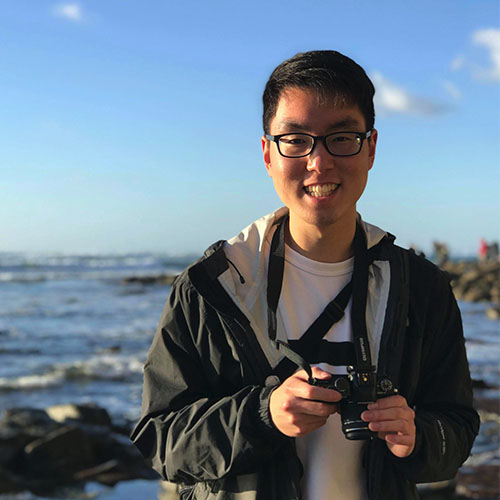
Albert Sohn
alsohn@uw.edu
The Men's Cancer Network: Prostate Cancer Educational Workshops
PRACTICUM SITE: The Men's Cancer Network
SITE SUPERVISOR: Freddie Muse Jr.
DEPARTMENT: Health Systems & Population Health
FACULTY ADVISER: Clarence Spigner
I am a second-year MPH candidate in the Department of Health Systems and Population Health. For my practicum, I worked with The Men's Cancer Network, a nonprofit organization primarily serving African-American men aged 35 and older in Los Angeles, CA. The organization seeks to increase cancer awareness and prevention along with wellness through cancer support groups and education workshops. My role was to create post-support group polls that assess the participants’ knowledge and facilitate the organization’s ability to evaluate the impact of its support groups, which include various presentations. I also reviewed the transcripts of prostate cancer workshops from 2019 to determine common questions and comments that were expressed.
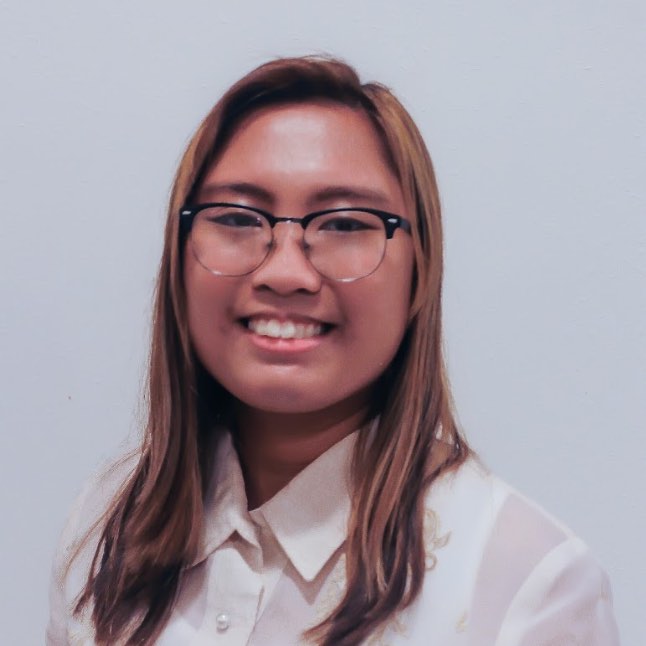
Mary Grace Tiglao
tiglao23@uw.edu
Cancer Health Disparities & Clinical Trials in the COVID Era” – An American Cancer Society Washington State Board Health Equity Forum
PRACTICUM SITE: American Cancer Society Washington
SITE SUPERVISOR: Kara Fortney
DEPARTMENT: Health Systems & Population Health
FACULTY ADVISER: Christian Dimaano
I am a second-year MPH student in Health Systems and Population Health (Social & Behavioral Sciences Track). My interests include health and cancer disparities research. For my practicum, I worked with the Washington State Board of the American Cancer Society (ACS), along with my fellow practicum student interns Neall Koetje, and Melita Lynch, to host a health equity forum. For the first phase of the project, I designed the event concept, discussed ACS’s Get Screened initiative with their senior director, and canvassed potential event logistics. I also conducted formative background research on current literature, works, and potential speakers to discuss the impact of COVID – 19 on disparities affecting the cancer care continuum. The forum was held on November 1, 2022 at the Fred Hutchinson Cancer Center. I am grateful to have been given this opportunity and extend my appreciation and thanks to everyone I worked with and helped make this event happen.